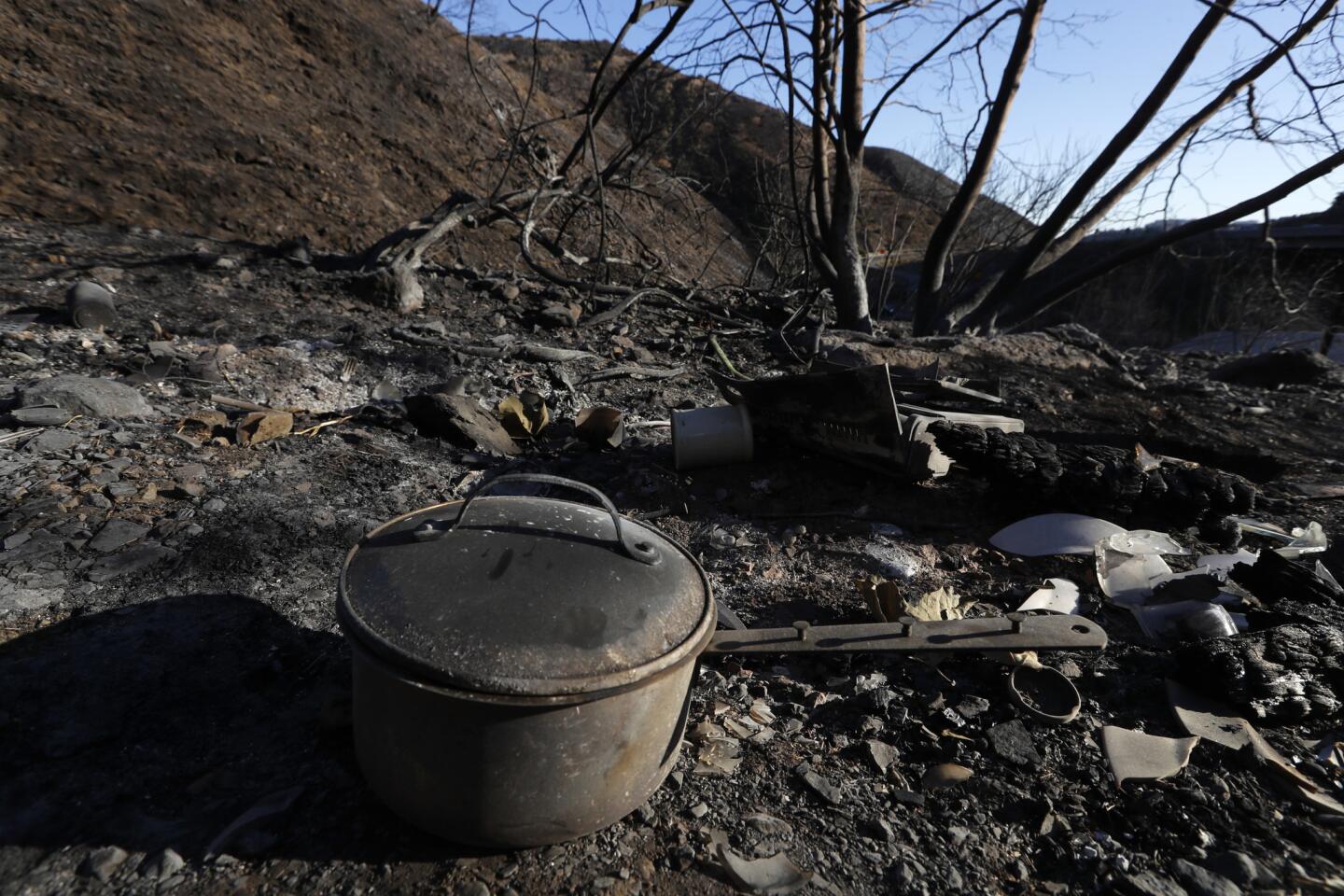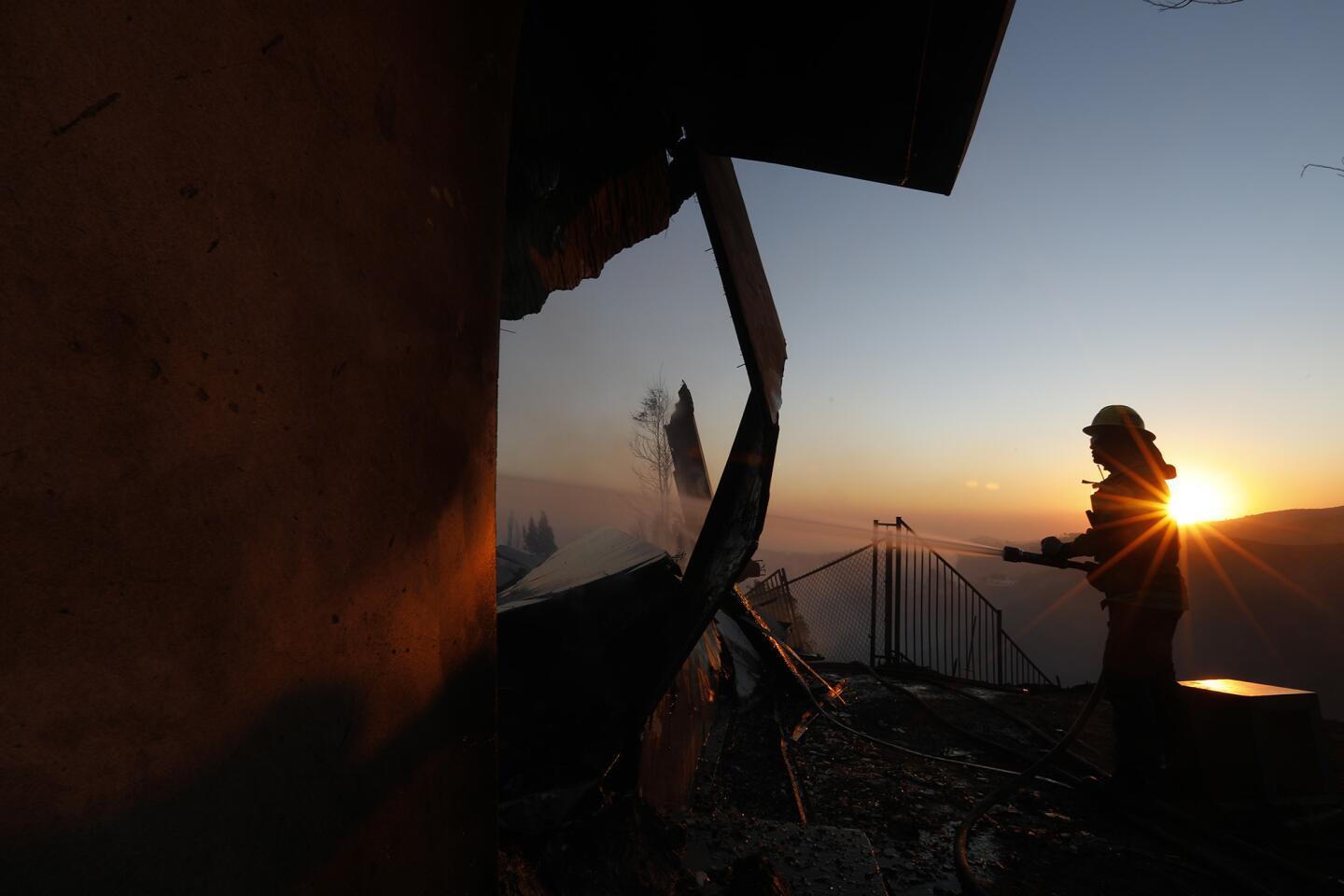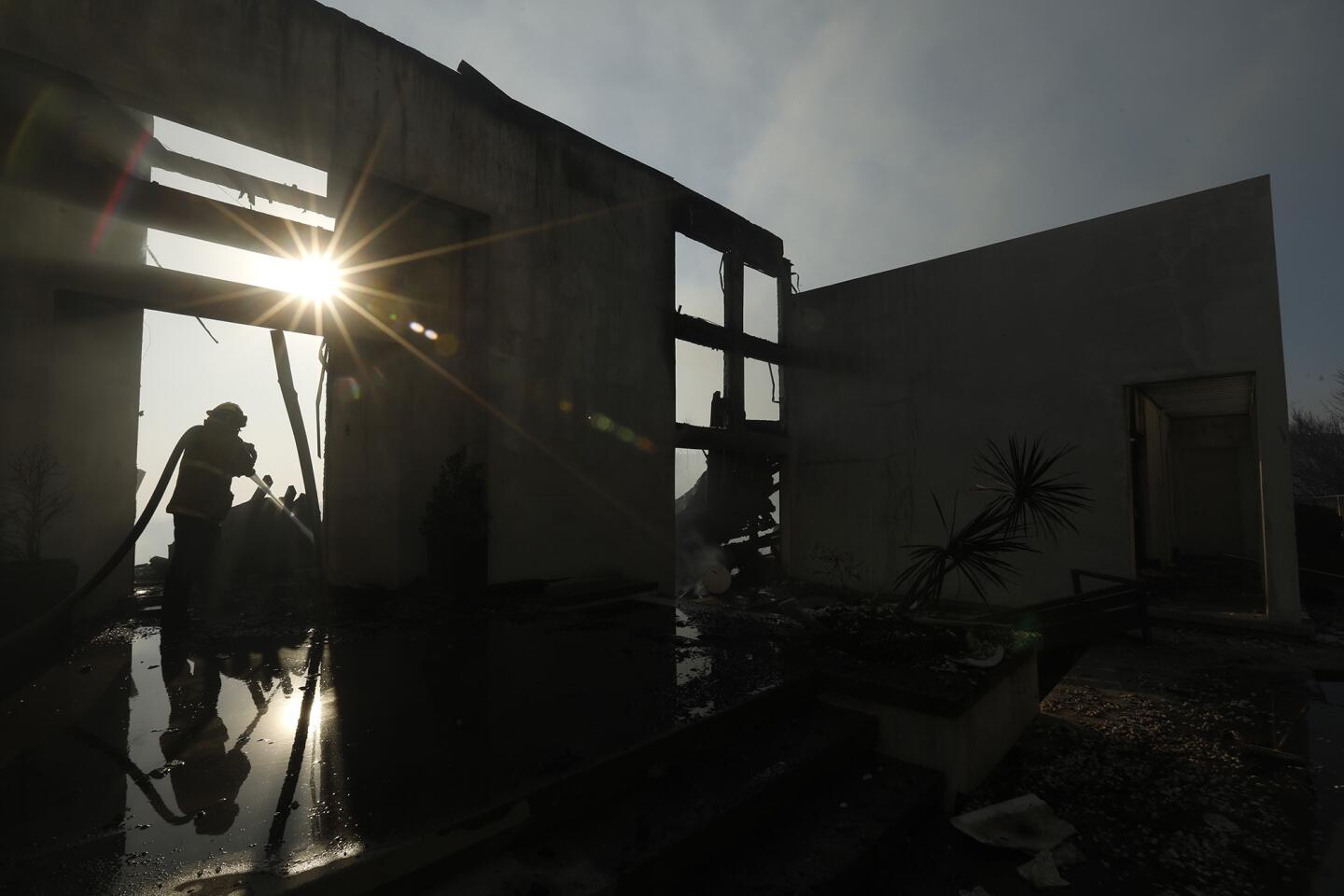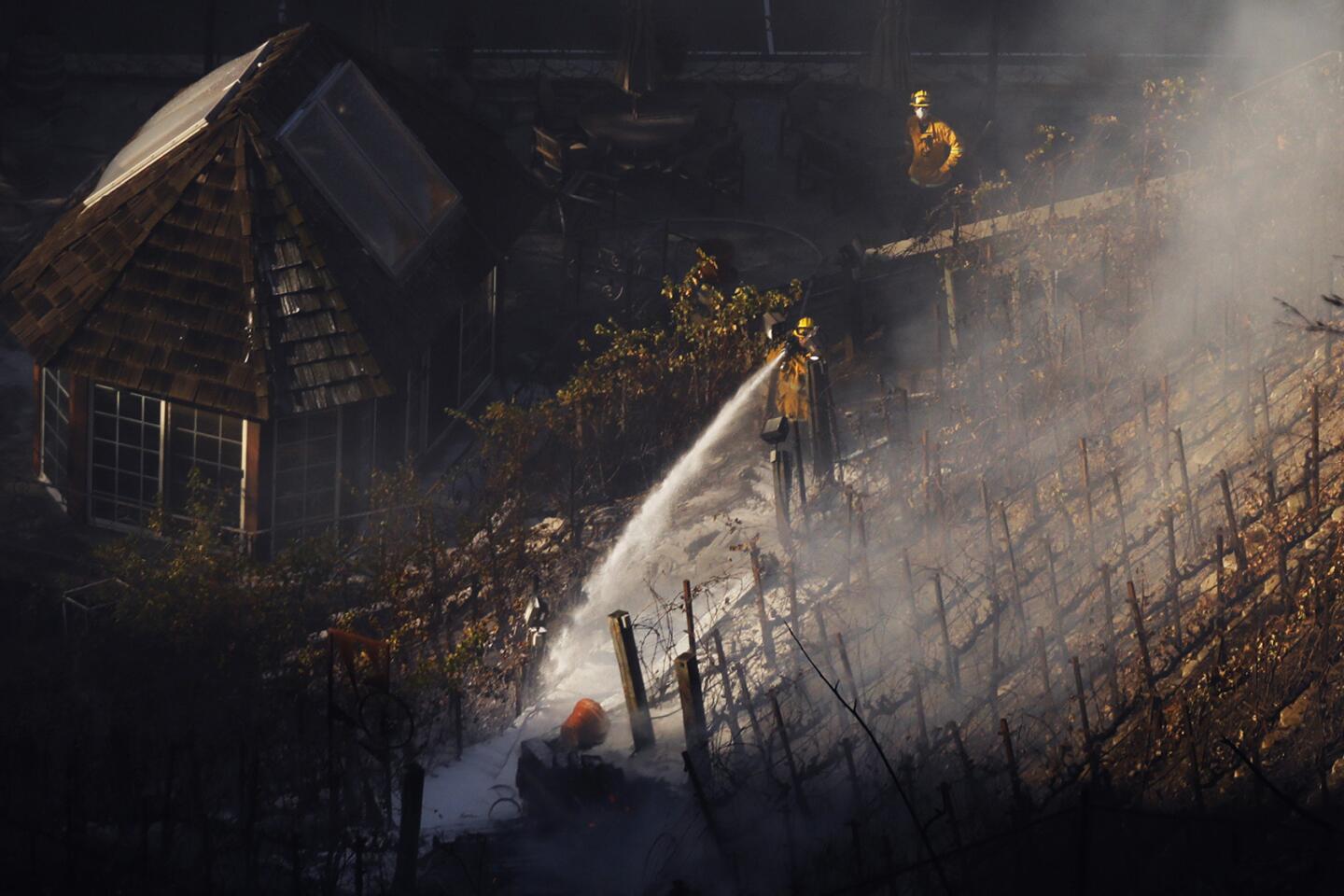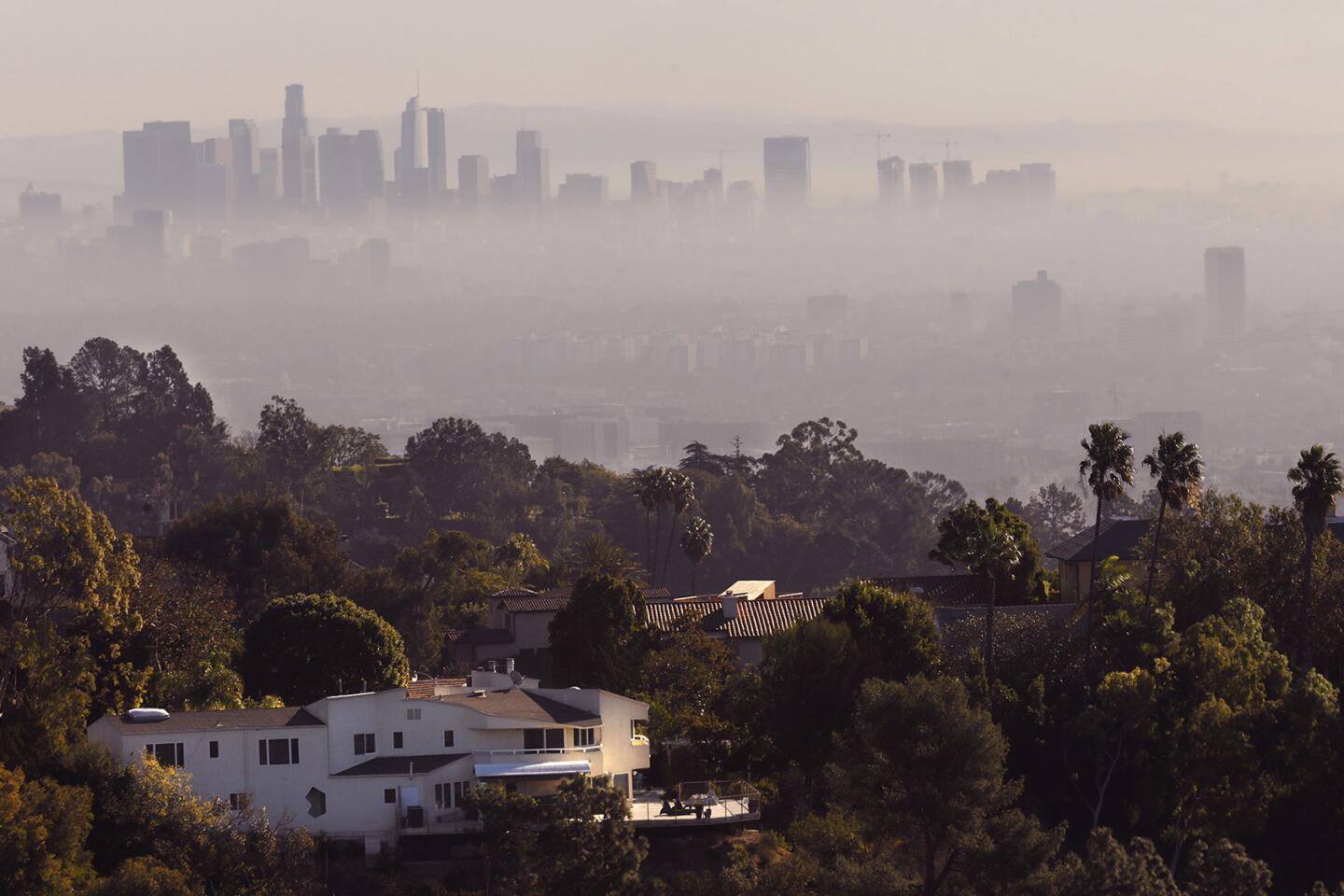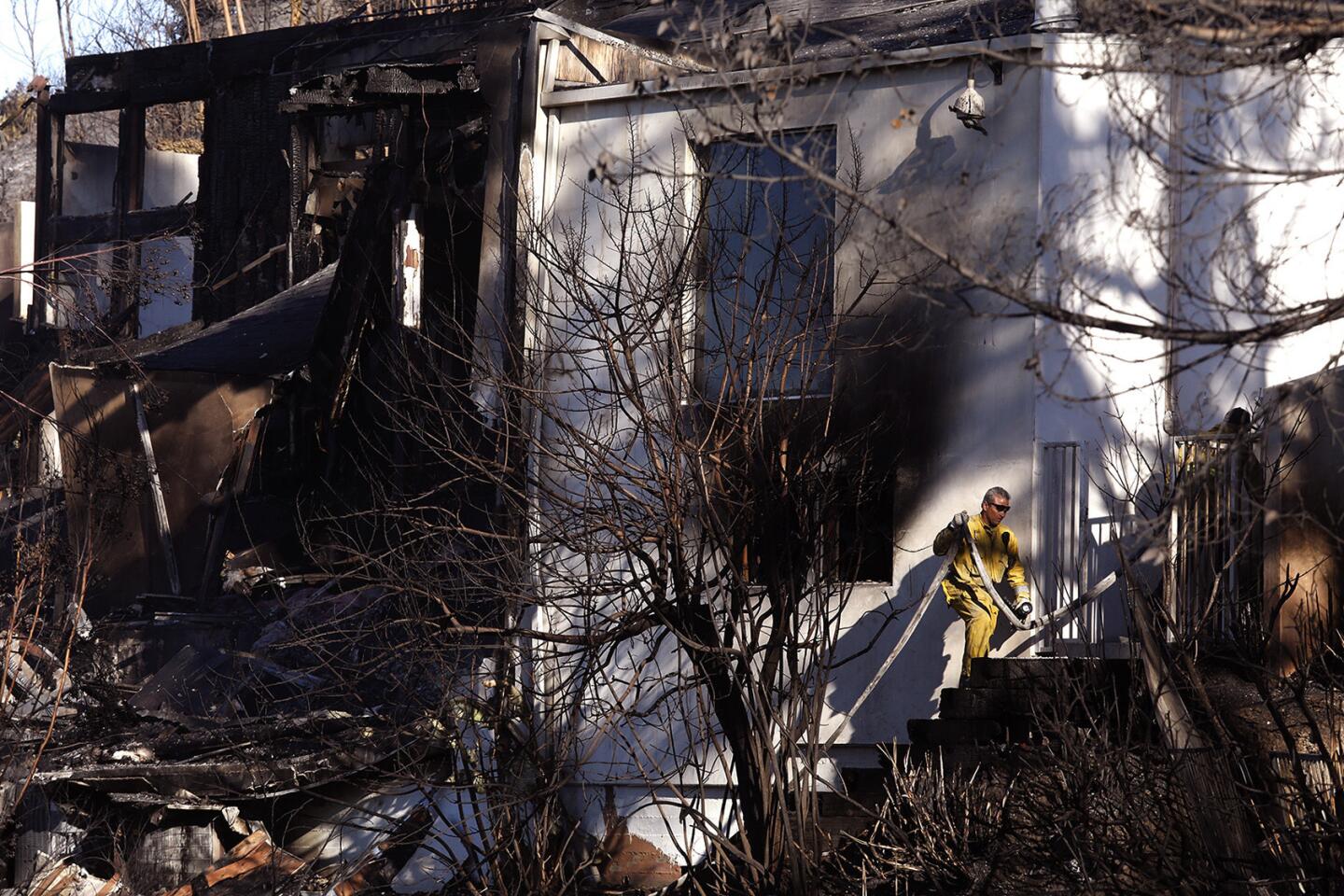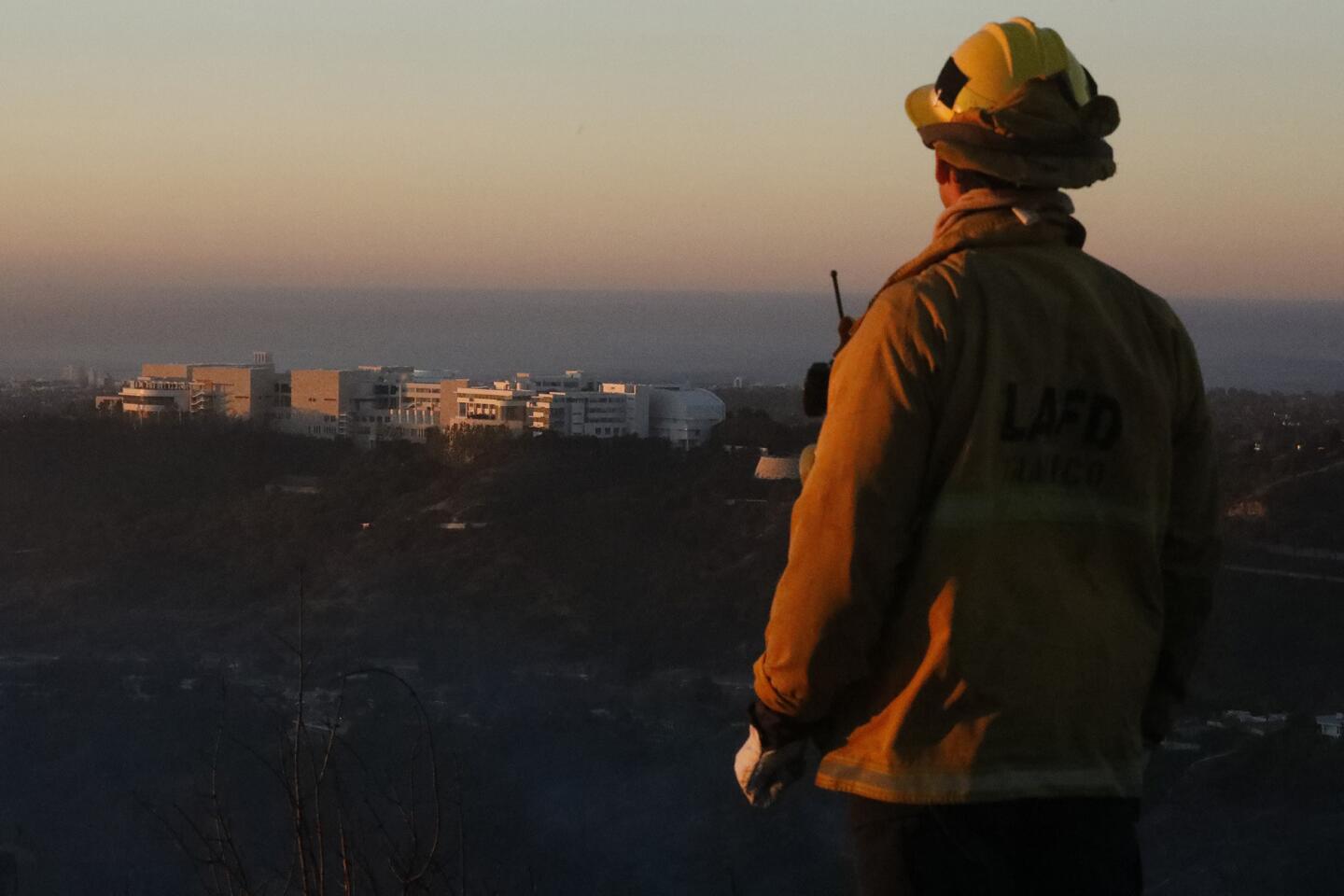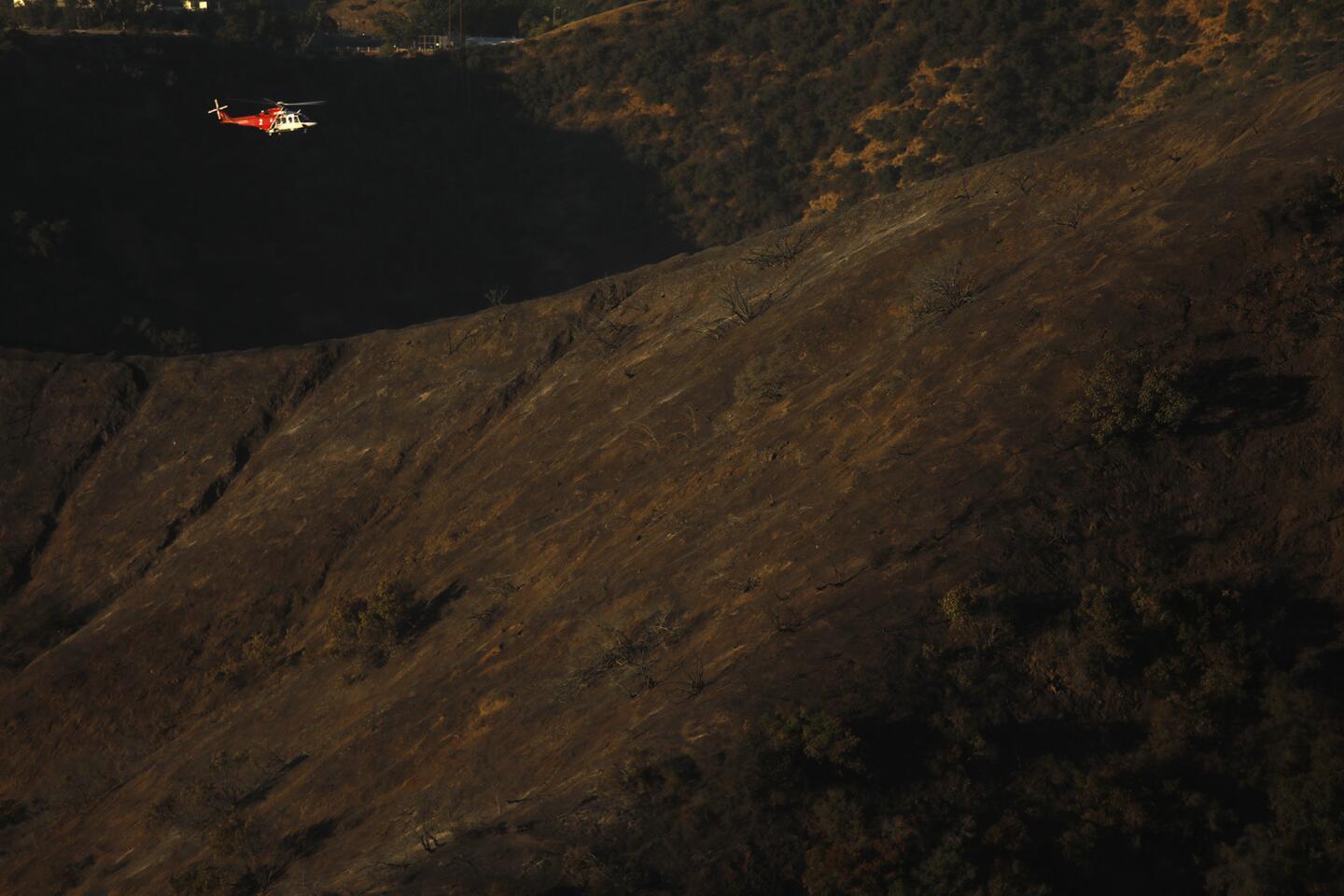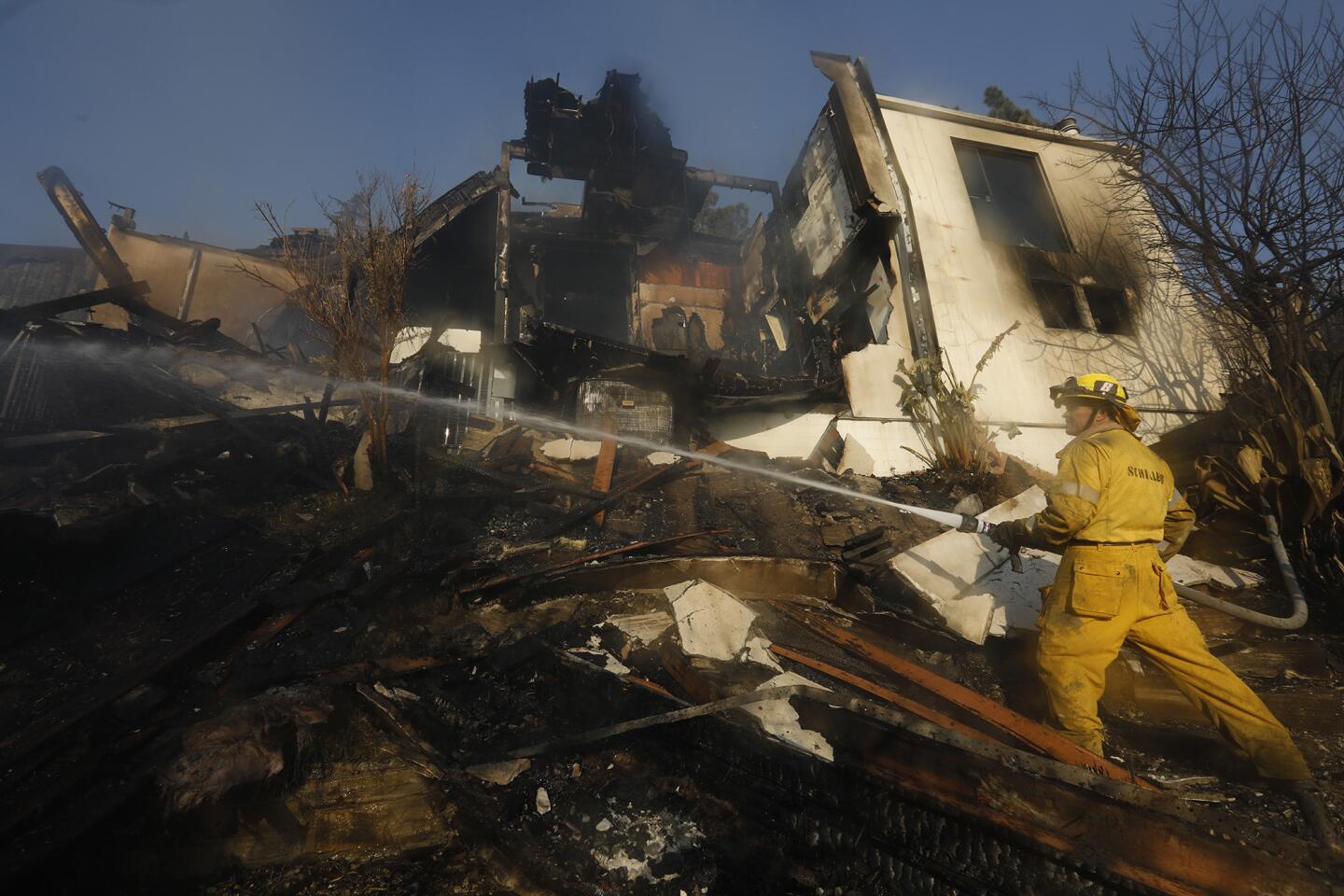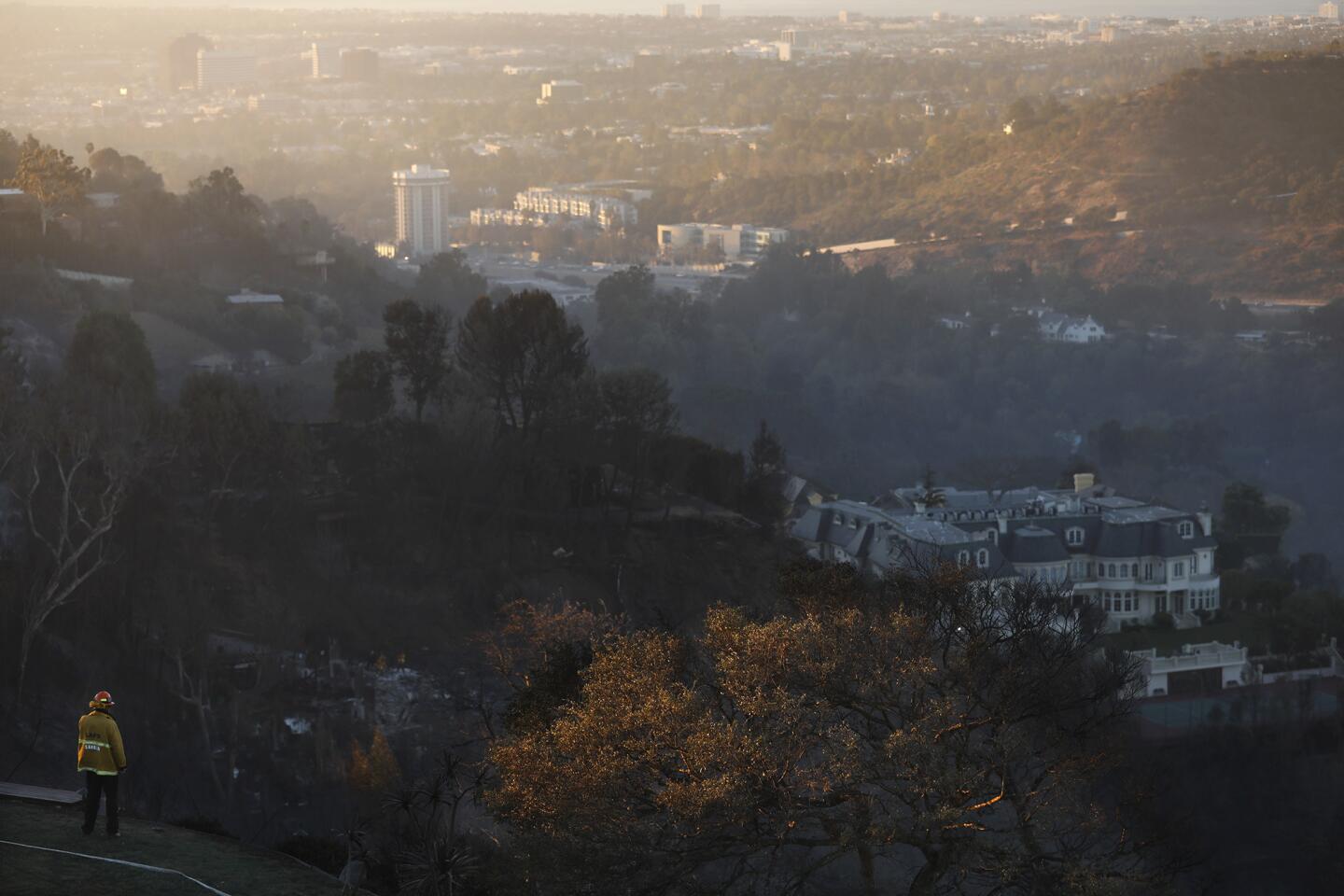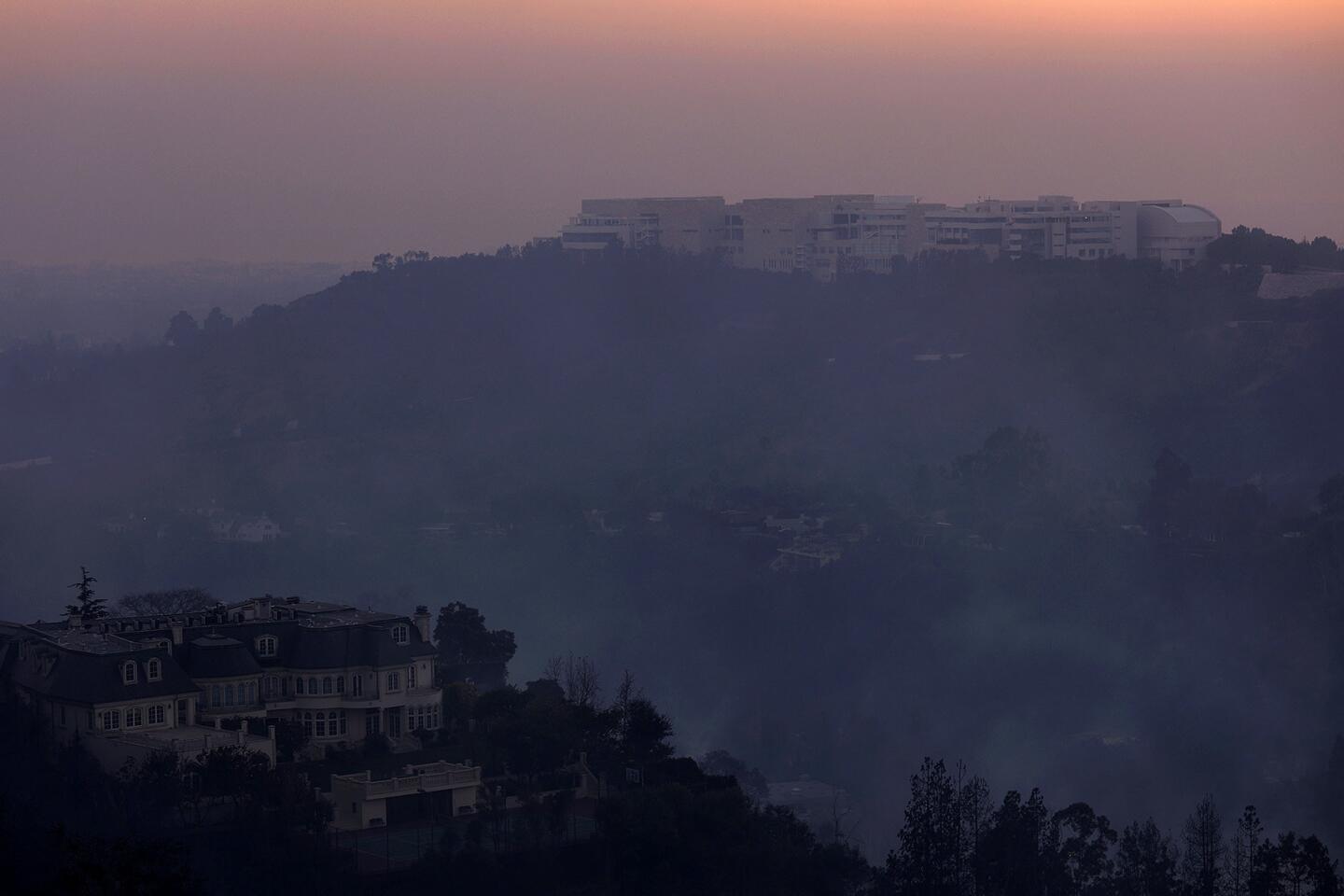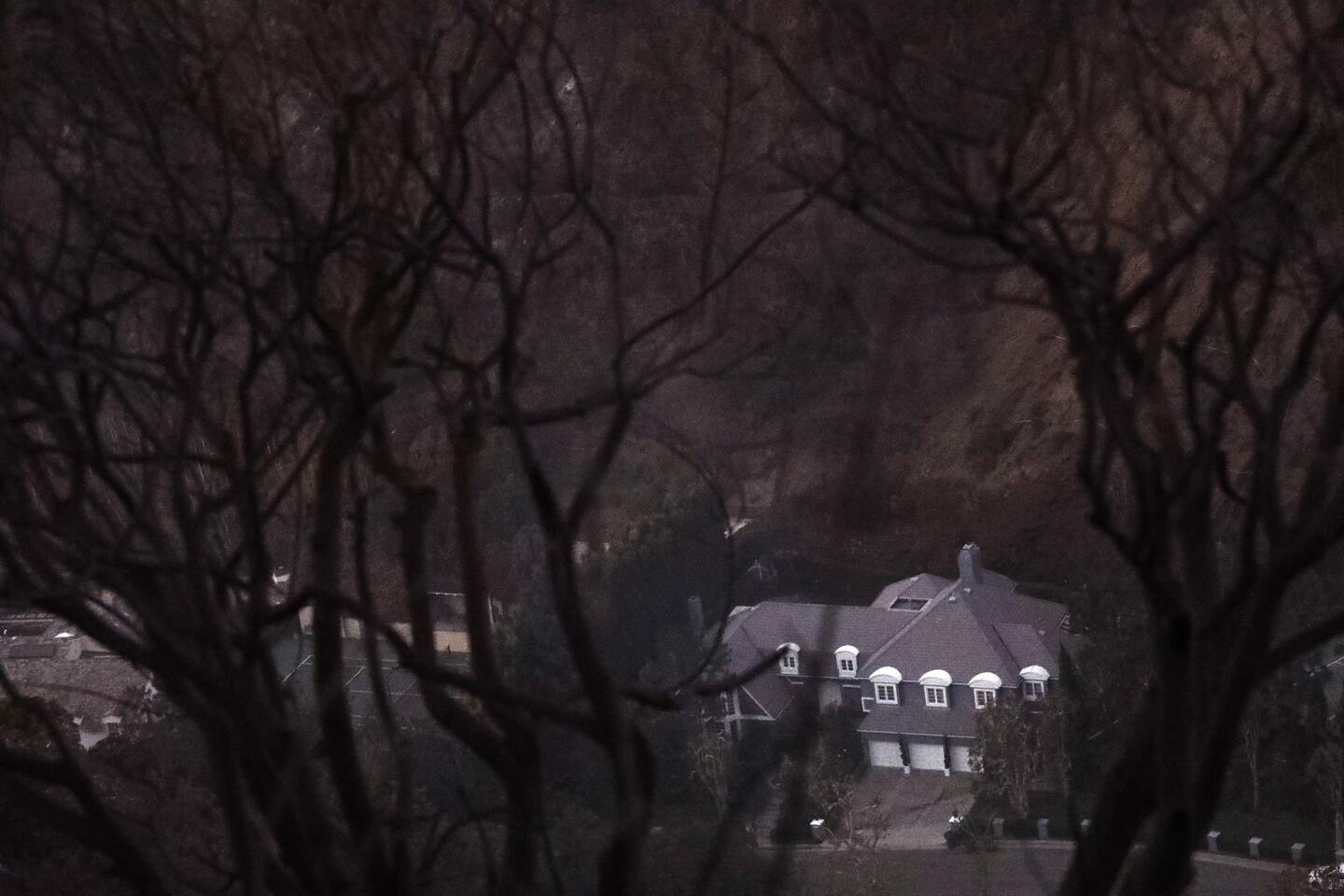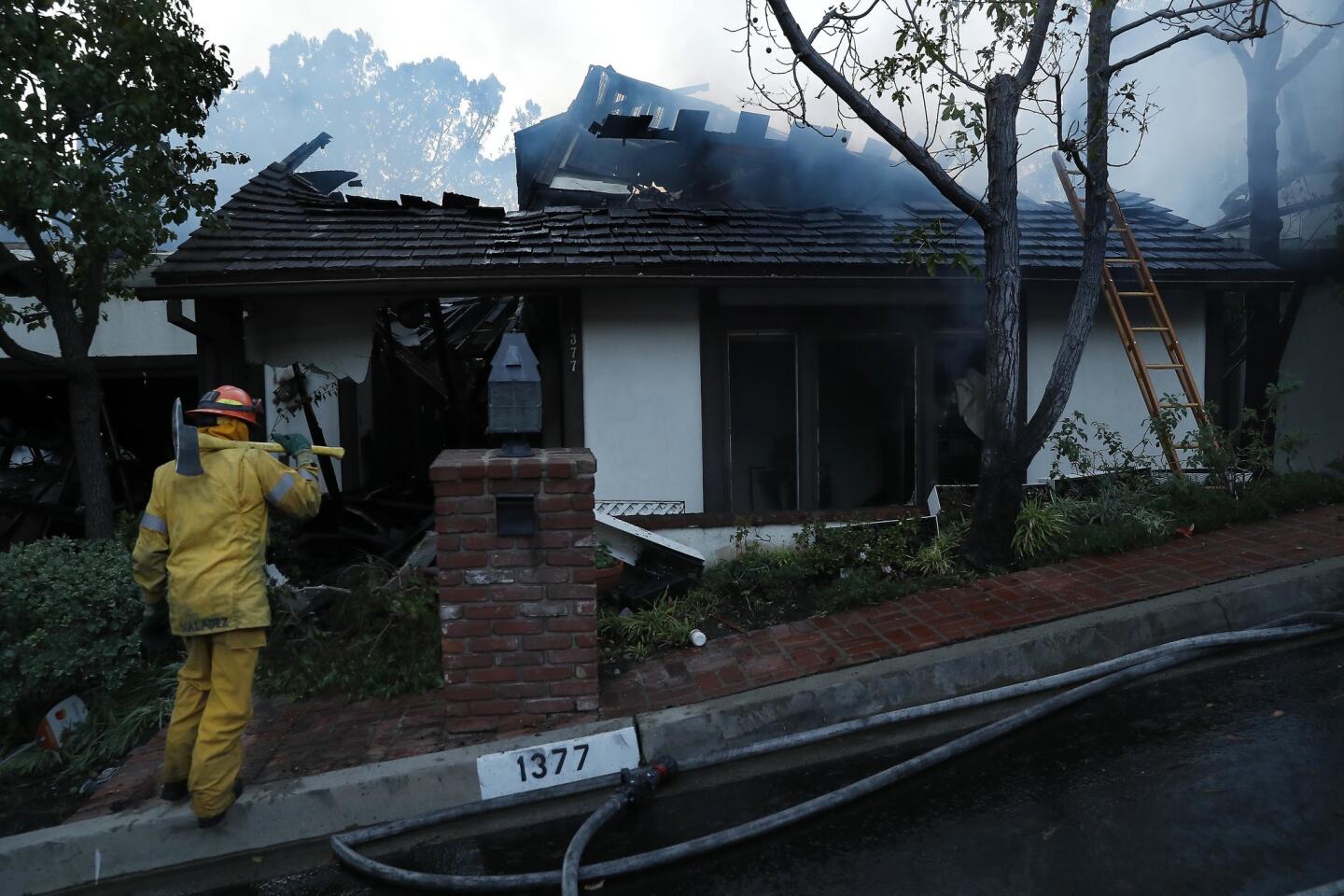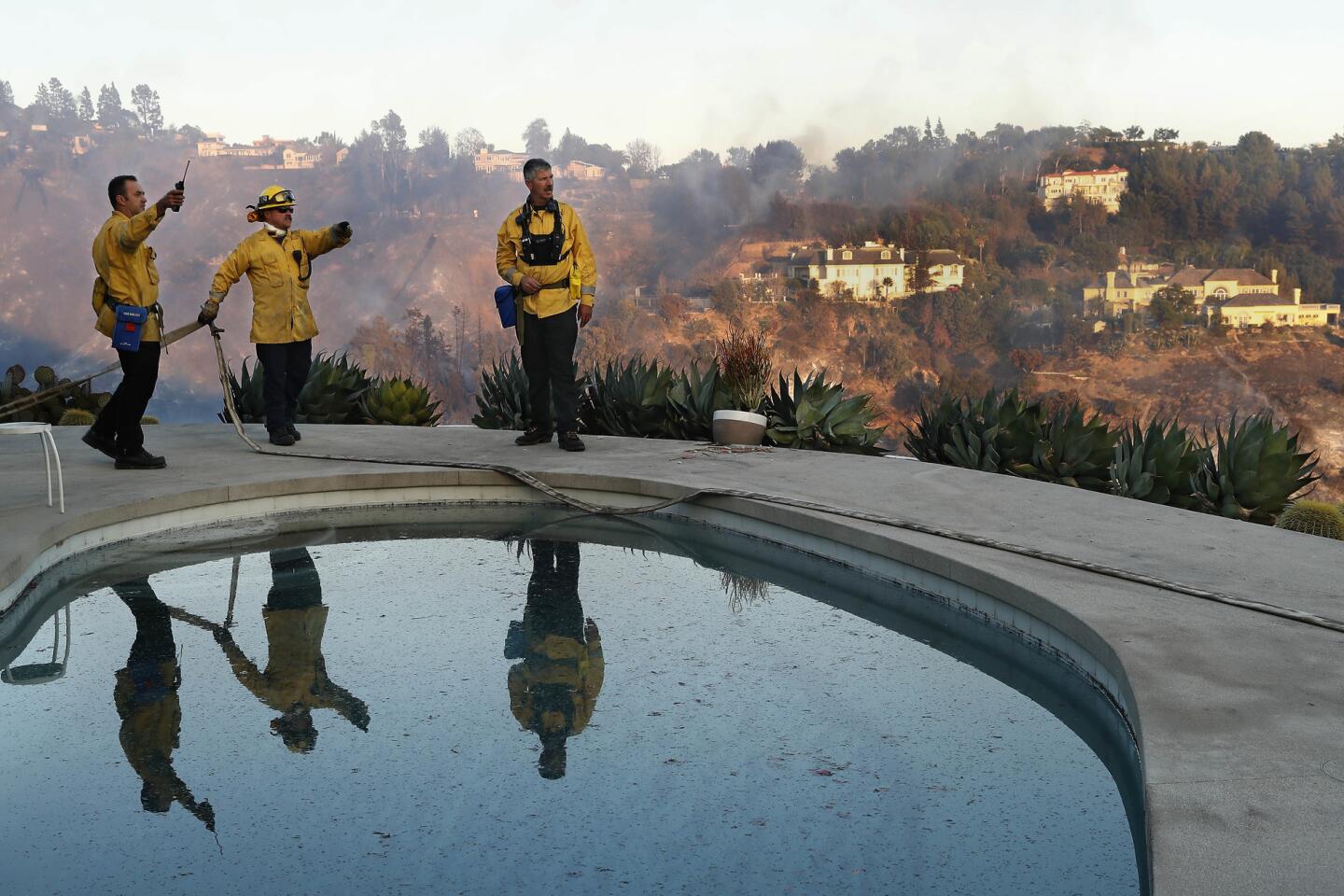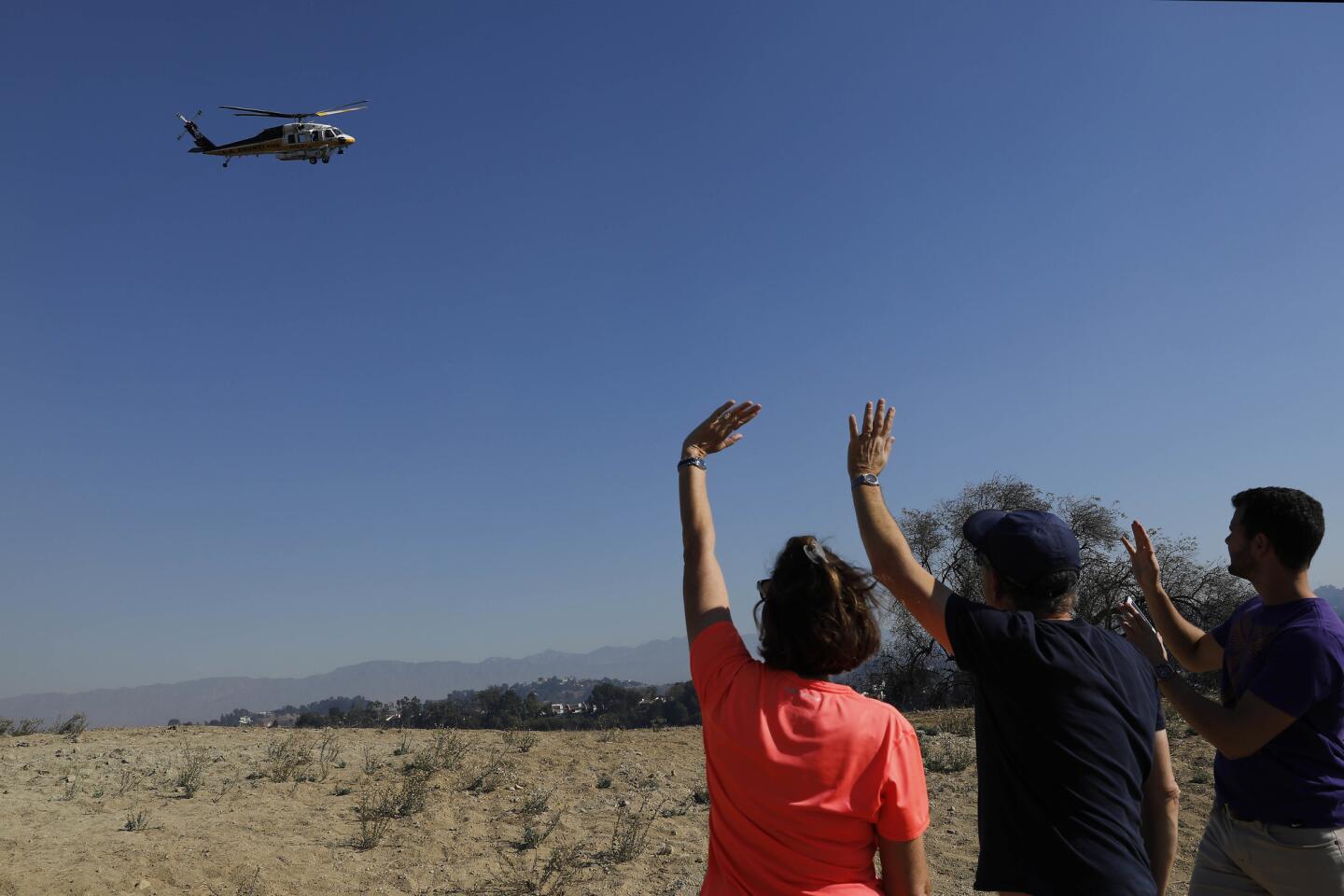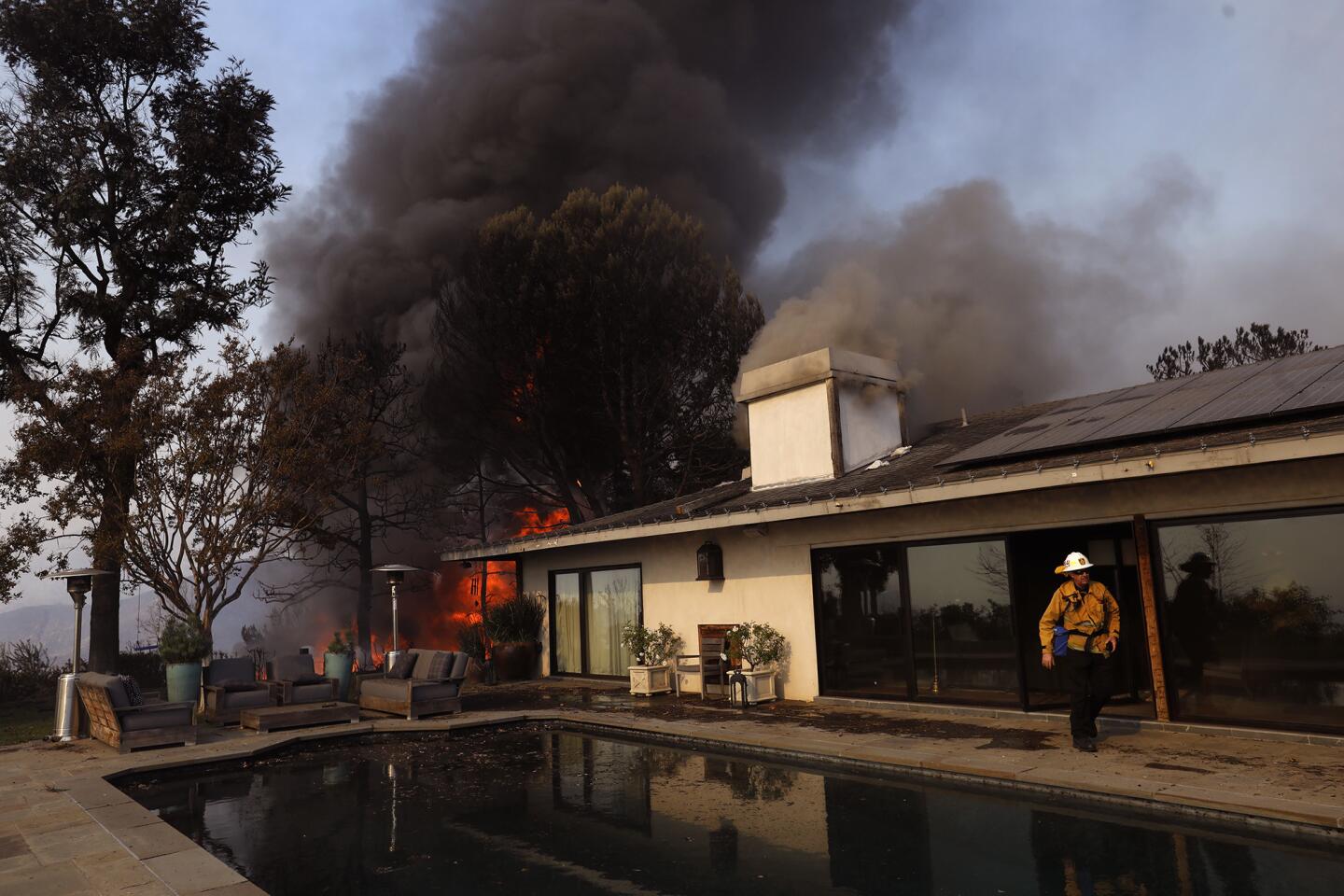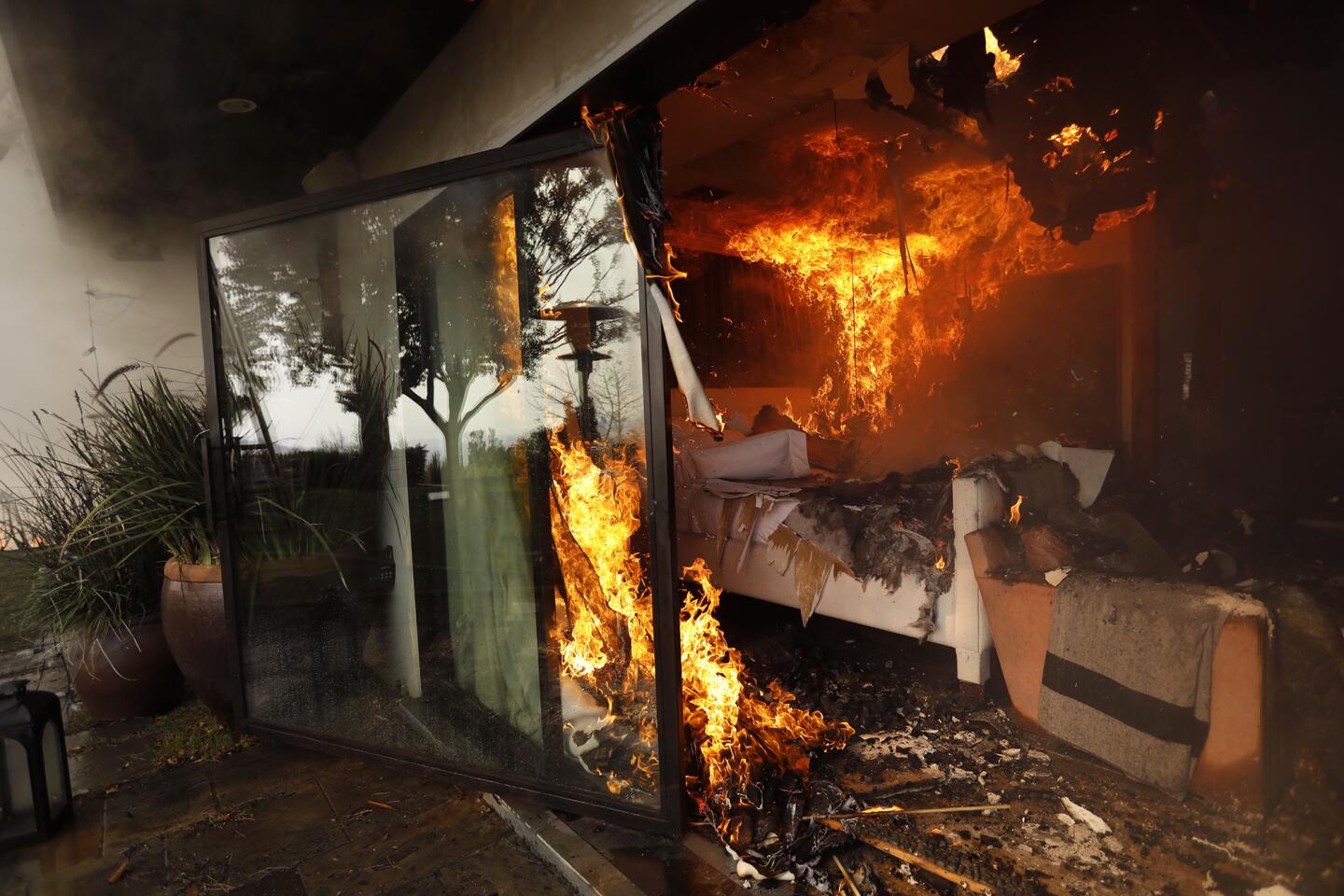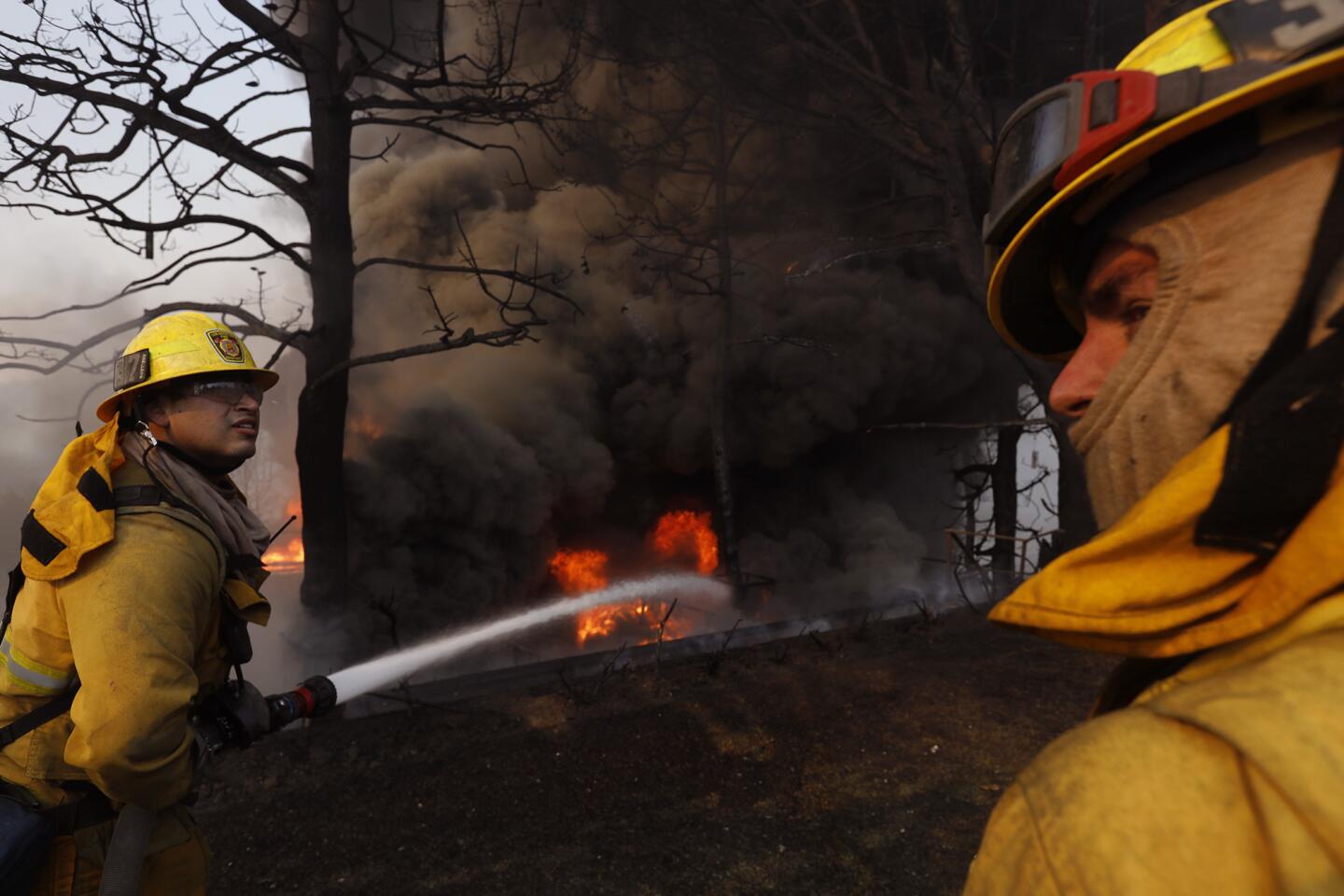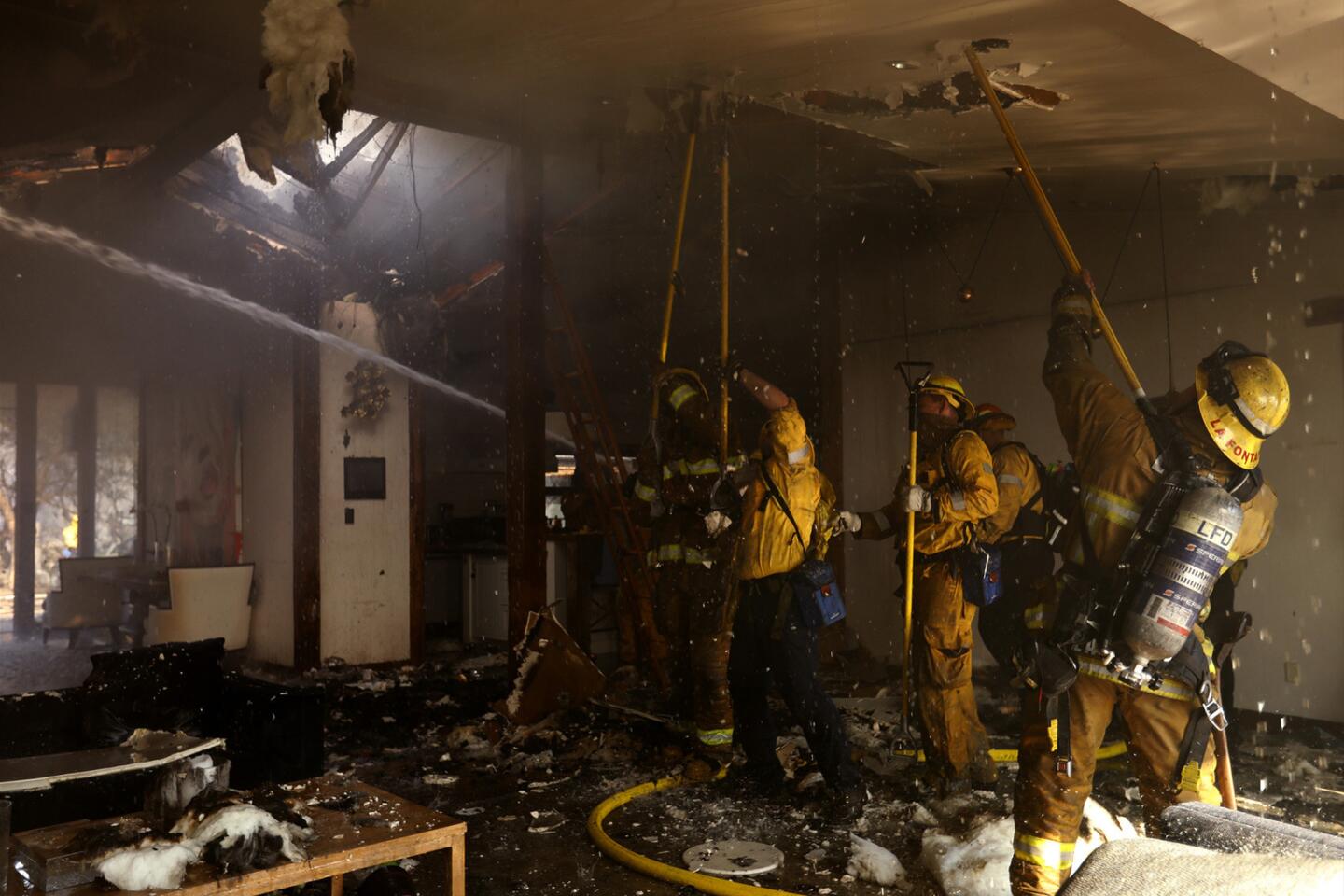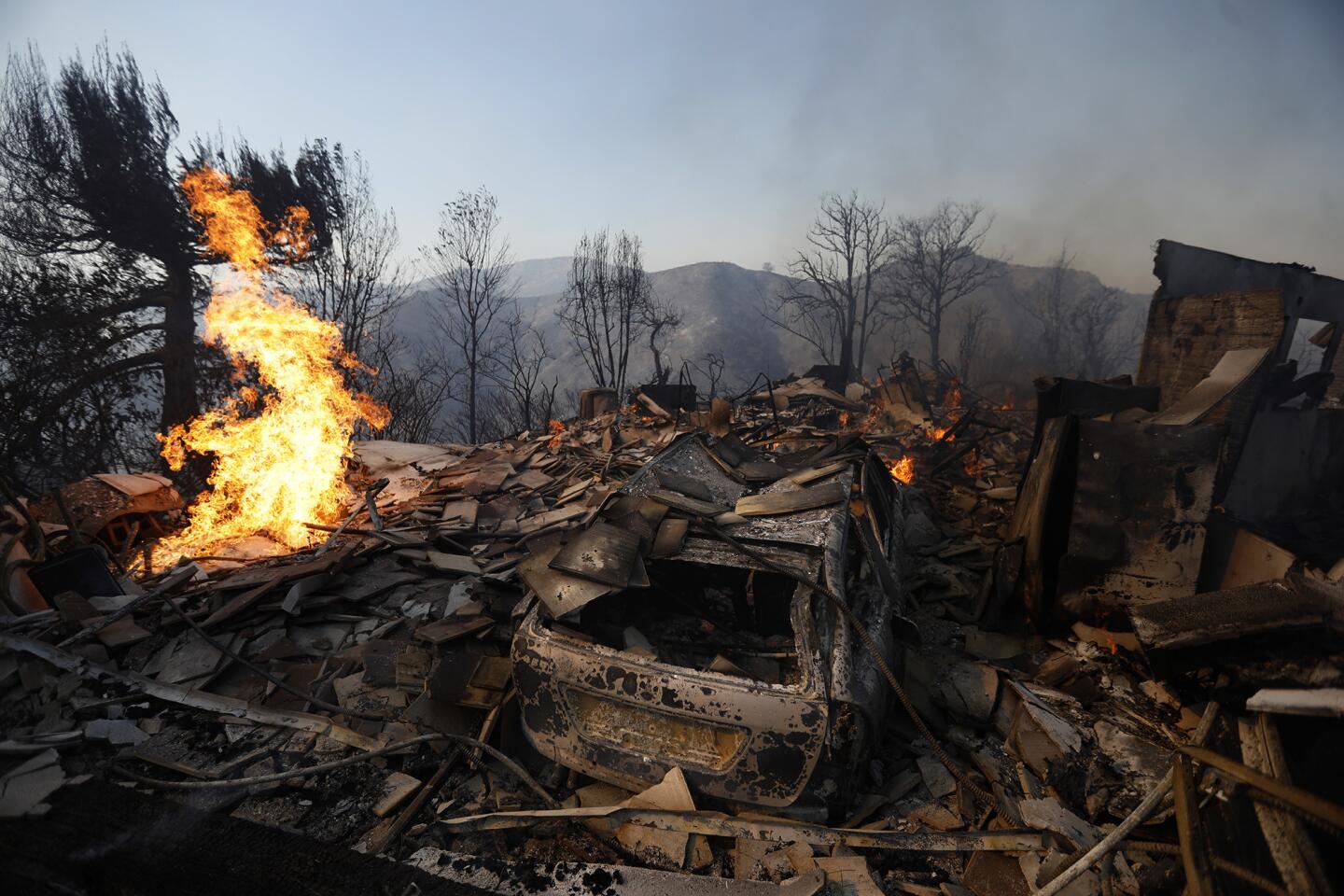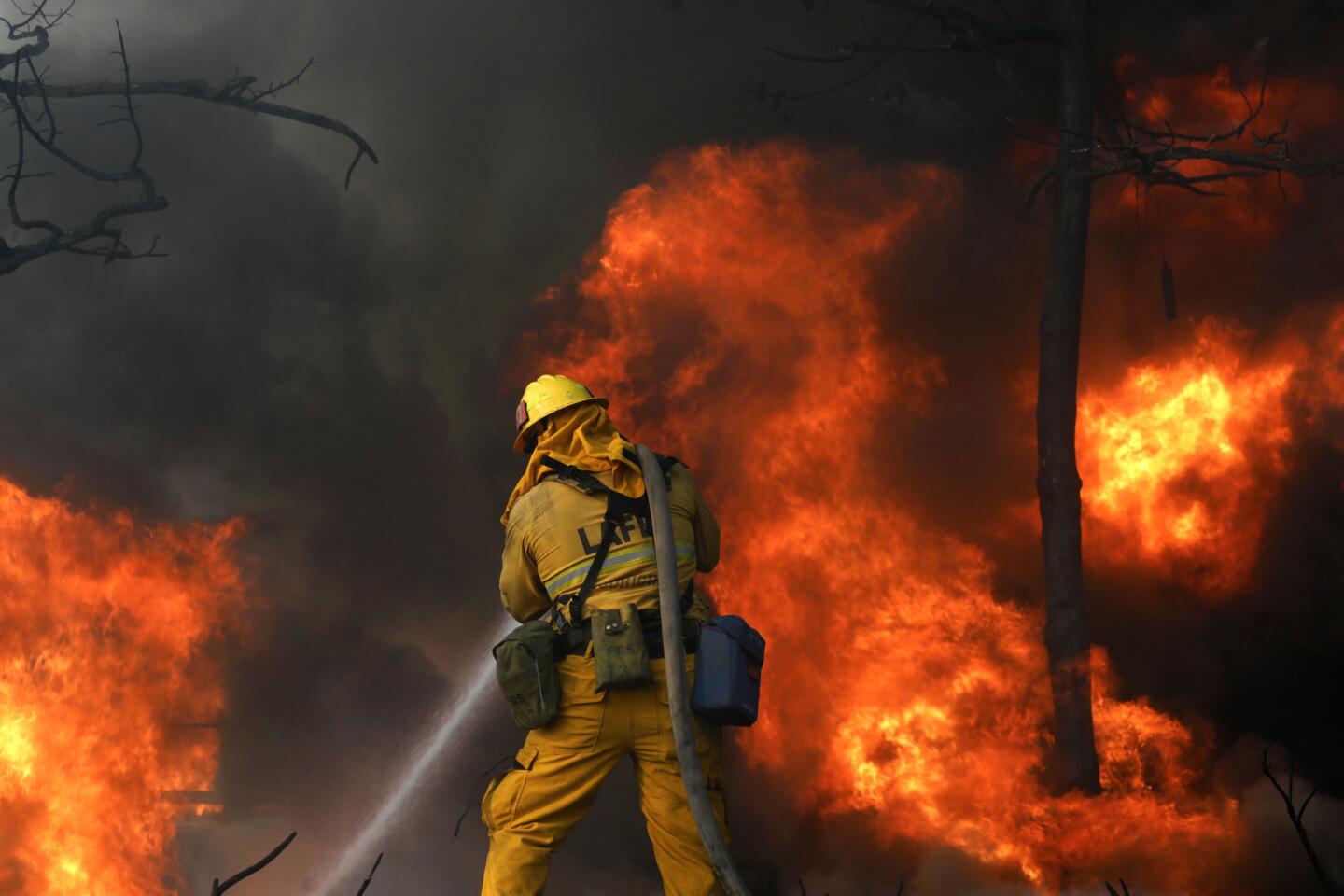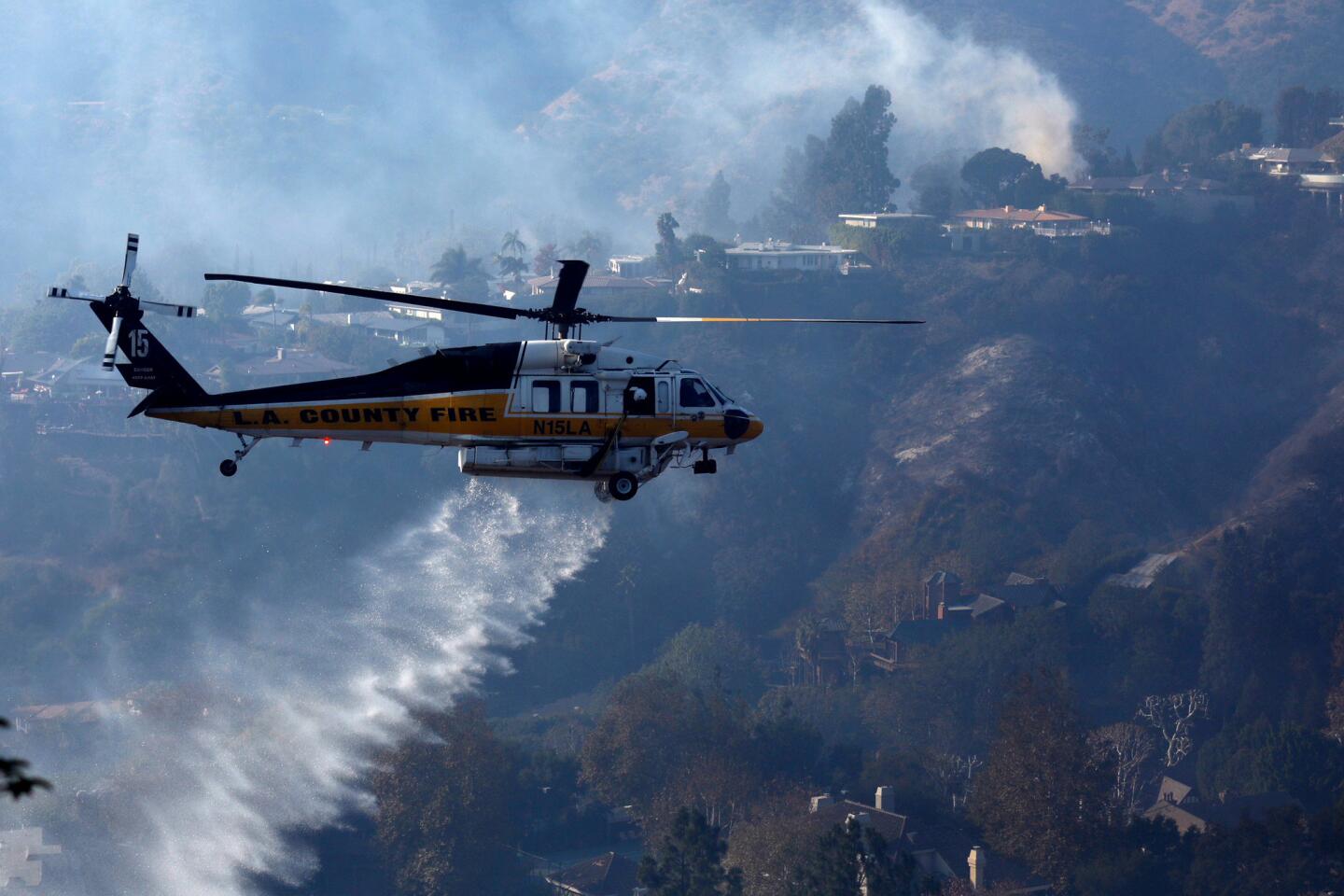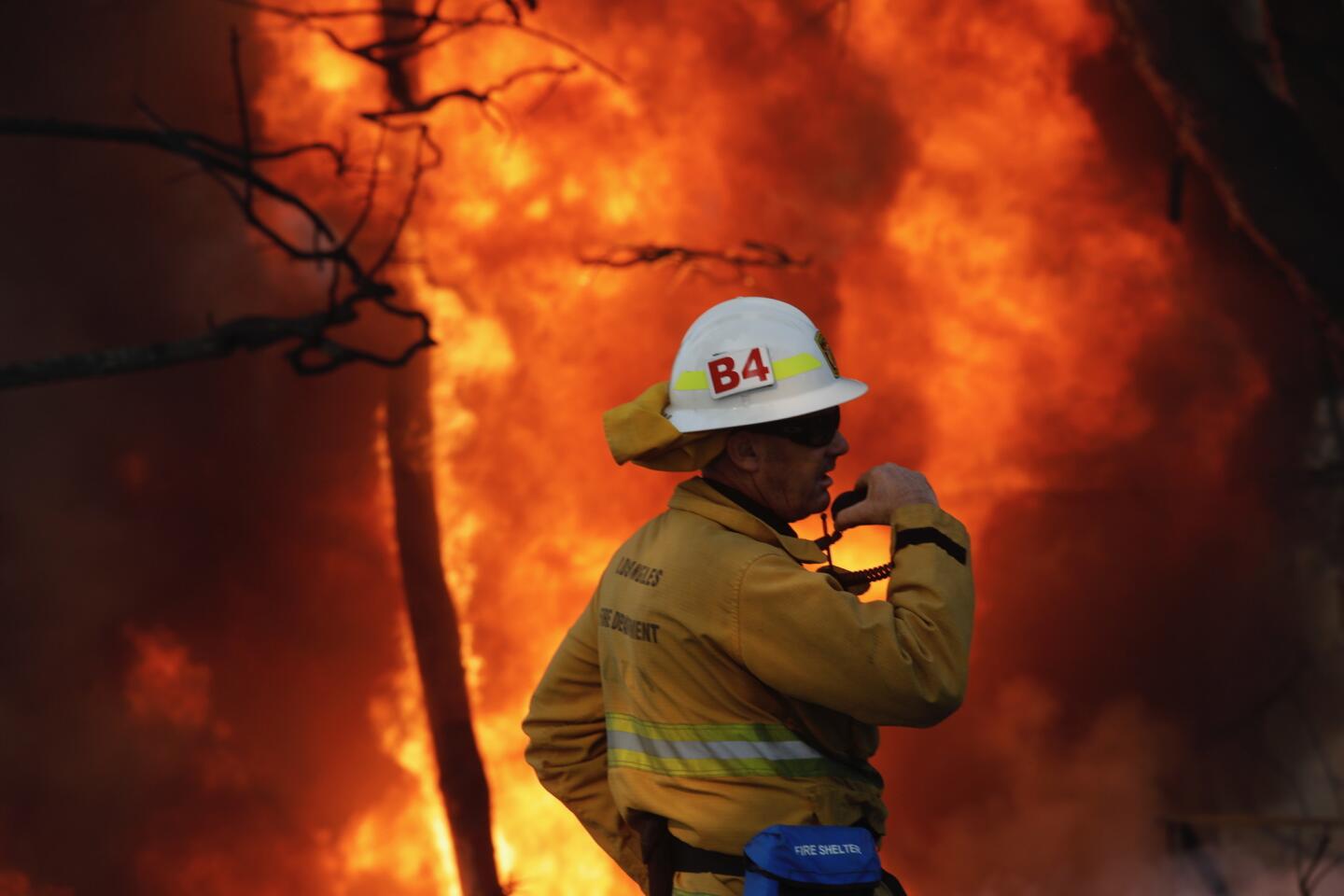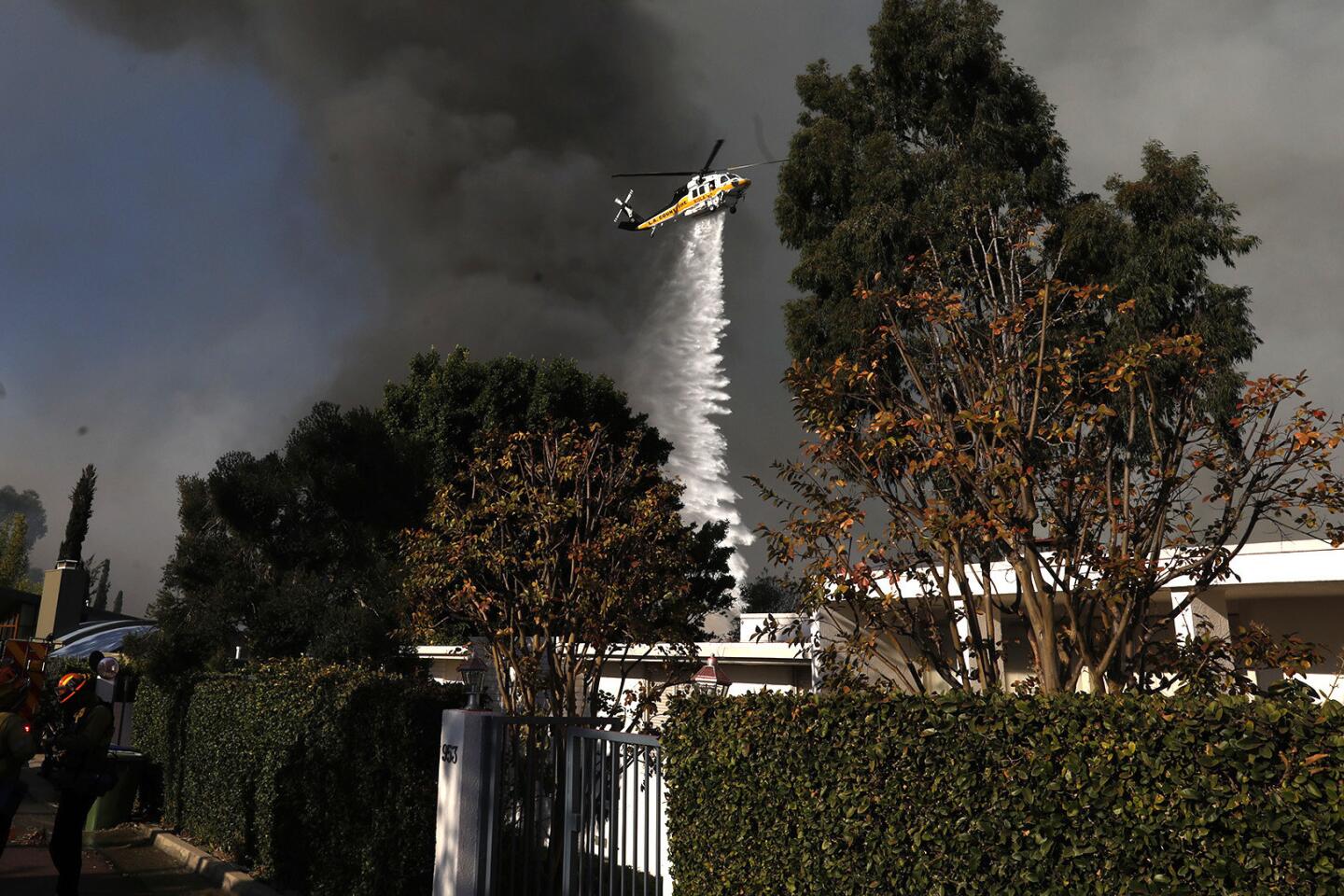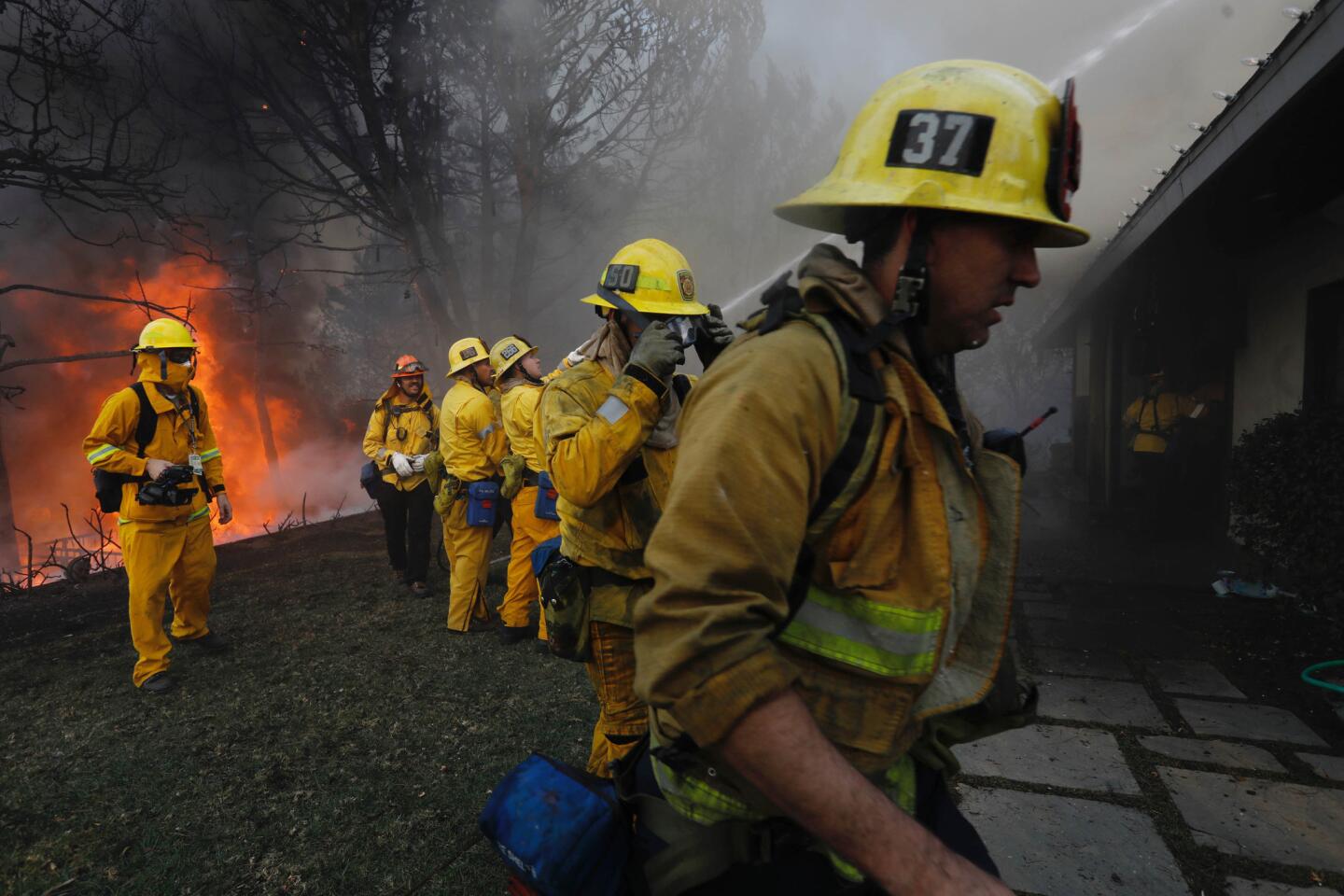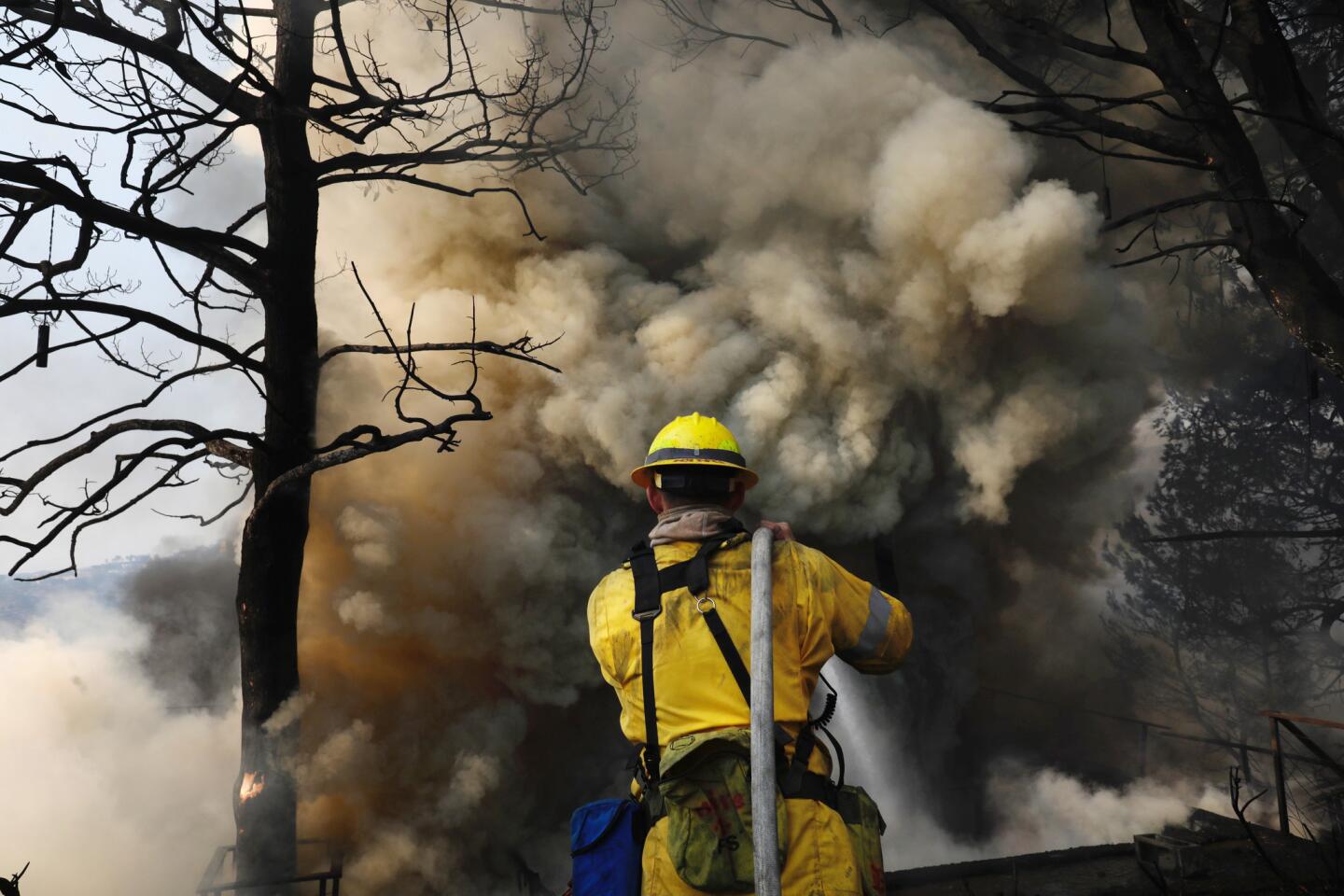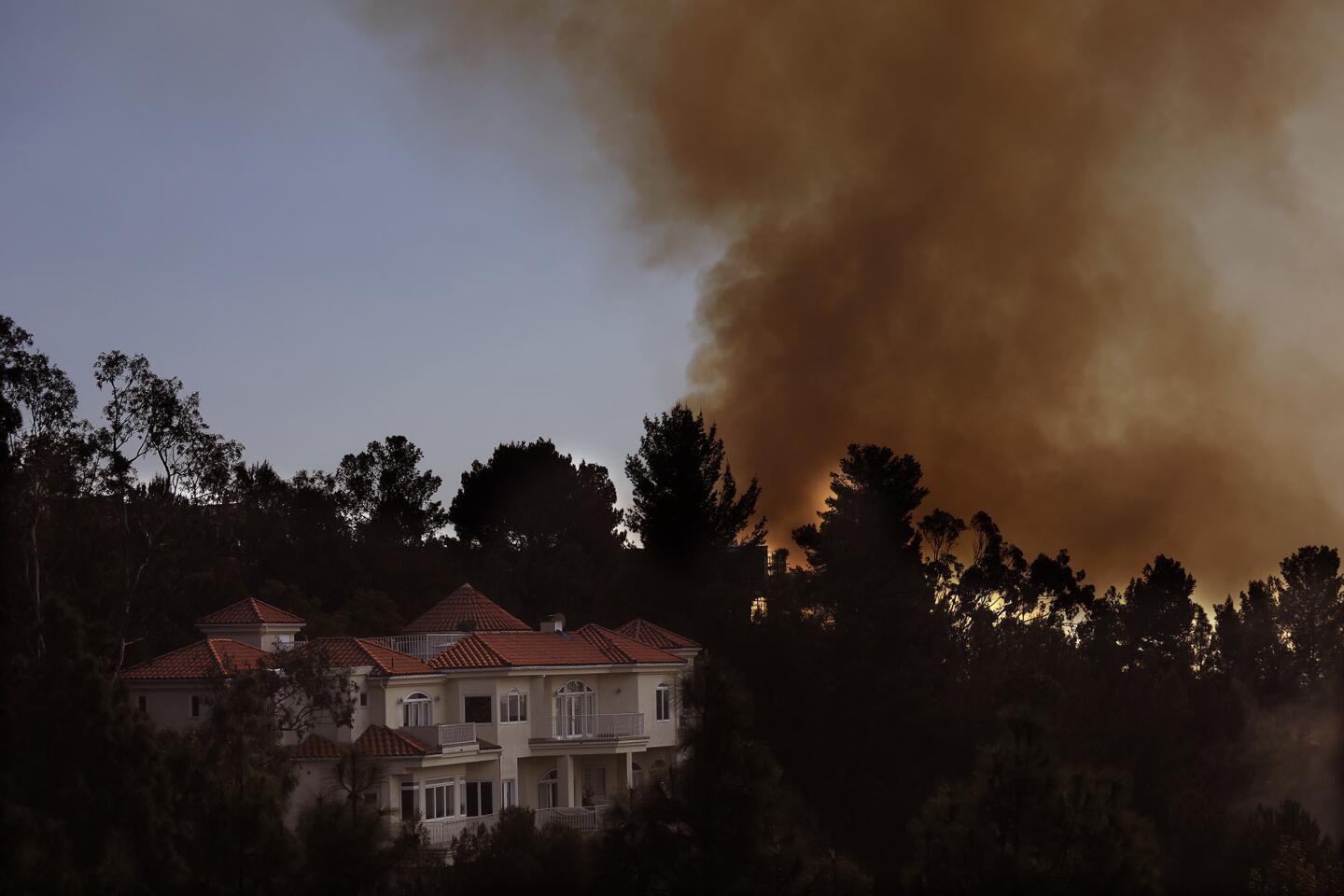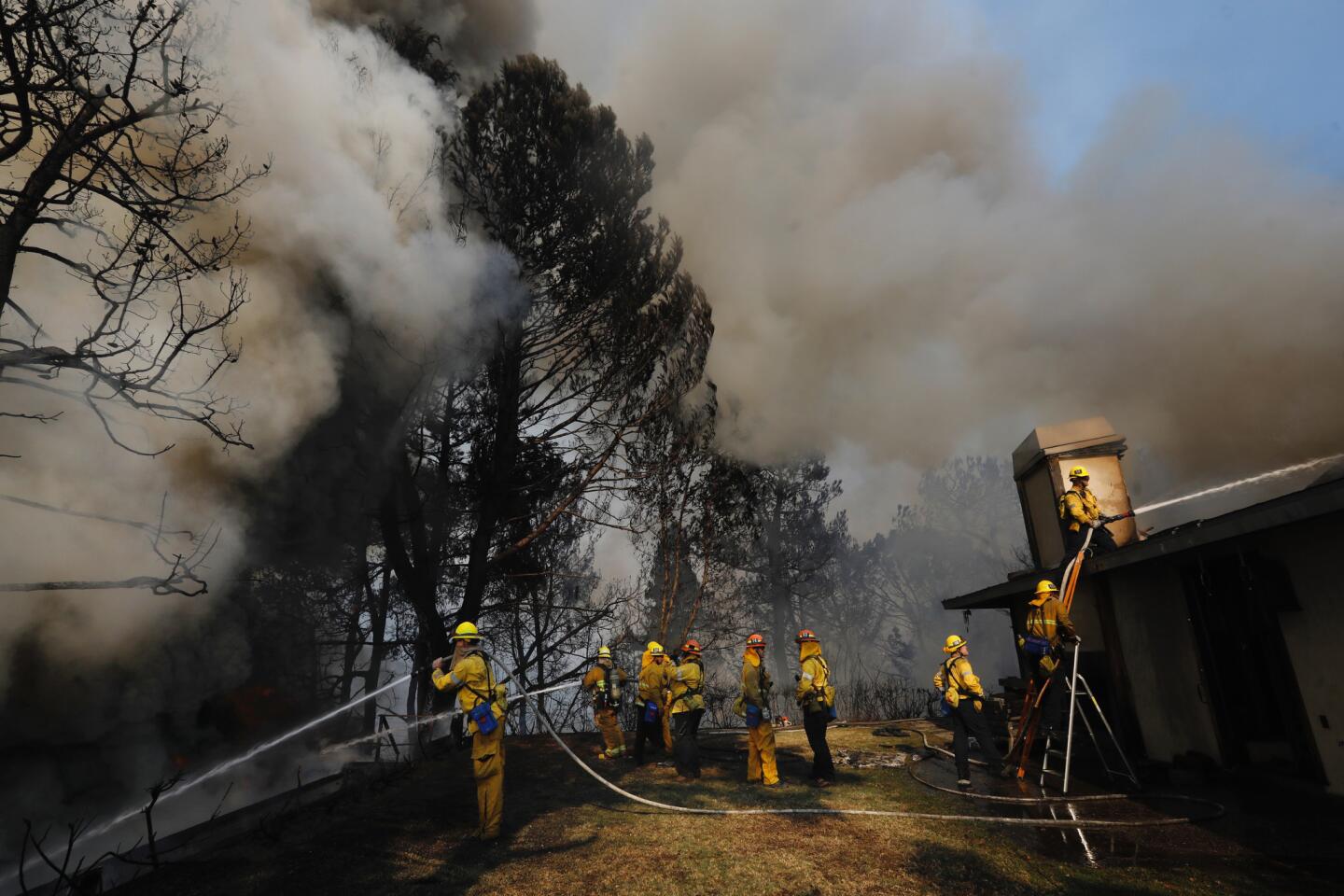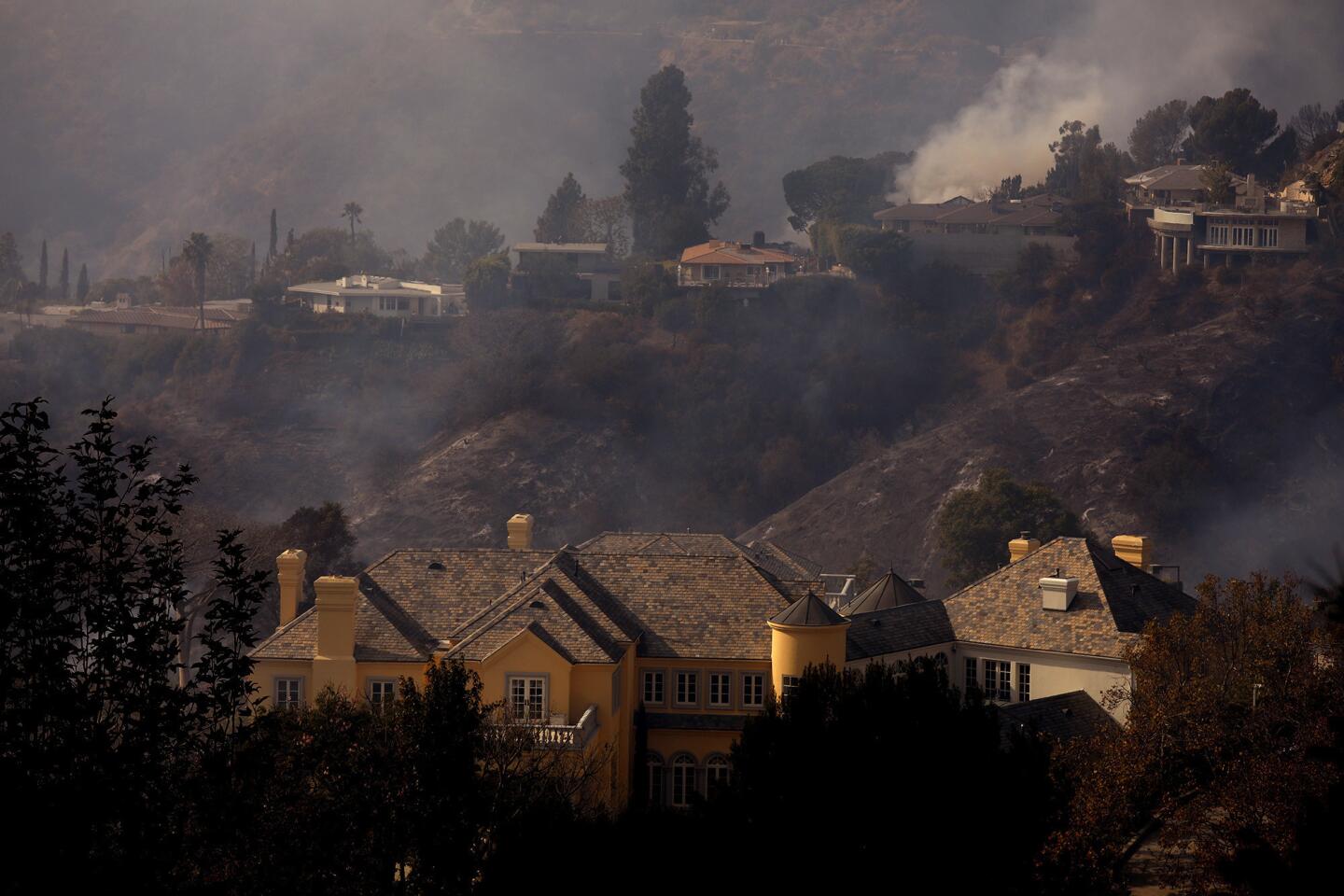Fire at a homeless encampment sparked Bel-Air blaze that destroyed homes, officials say
- Share via
The blaze that swept through the hills of Bel-Air last week, destroying six homes and damaging a dozen others, was sparked by a cooking fire at a homeless encampment in a nearby ravine, Los Angeles officials said Tuesday.
The encampment was nestled in a canyon several hundred feet from Sepulveda Boulevard and the 405 Freeway, hidden from passing cars. For several years, it had been home to an unknown number of people, officials said.
Investigators said the fire had not been set deliberately and they have not found any of the people who lived there. The camp — one of scores of makeshift communities that have grown along freeways, rivers and open space across Los Angeles — was largely destroyed in the fire, leaving authorities with little evidence.
News that one of Los Angeles’ most affluent neighborhoods was damaged in a fire sparked by some of the city’s poorest residents added a sober note to the incident, with some officials saying it underscores the need to do more to house the homeless.
This “makes a tragic event even more tragic,” said Los Angeles Councilman Paul Koretz, whose district includes Bel-Air. “The saddest thing is that we have so many homeless people. And they are everywhere in the city. And that sometimes causes serious problems.”
A new task force for fire prevention will tackle some of those questions, officials said. The panel will consider mandatory evacuations of hillside and brush area encampments during days or seasons of high fire risk, and education campaigns to discourage outdoor fires when winds pick up.
“But given the topography of… all the hills in our city, we could do that 24 hours a day and still miss a lot of people,” Los Angeles Mayor Eric Garcetti said. “Just like ramping up efforts to try to anticipate terrorist incidents, you can never get to zero risk. And I think it would be a mistake to think we could.”
Nickie Miner, vice president of the Bel Air-Beverly Crest Neighborhood Council, said residents had long worried about the fire hazard from hillside homeless encampments, but “all the agencies’ hands seemed to be tied.”
“We knew it was only going to be a matter of time before something horrible happened,” Miner said.
Miner said she was skeptical of the proposed campaign to educate homeless people about fire risks. Los Angeles needs a massive regulatory overhaul like the one that followed the 1961 Bel-Air fire, she said, which should include eliminating hillside encampments.
Humans are usually the cause of fires in Southern California, including sparks from car crashes, farm equipment, cigarette butts or camping fires, officials said.
Debate about camps and the fire danger come as Los Angeles is struggling with a rise in the homeless population. An annual count in May found that the homeless population of Los Angeles County had soared 23% to nearly 58,000 people in the last year. The homeless population in the West L.A. service area — including Bel-Air and Brentwood — rose 18% from 4,659 to 5,511 in the same time period, the count found.
Photos taken of the Sepulveda encampment in September and shared with The Times showed a cluster of green and olive tarpaulins stretched across a canyon and camouflaged by treetops and brush.
The camp is “a little obscure,” Los Angeles Homeless Services Authority spokesman Tom Waldman said. An outreach team had not visited the ravine for at least a few months, and possibly as long as a year, he said.
Fire investigators found evidence that people had been cooking and sleeping there, but did not find anyone to interview, Los Angeles Fire Department spokesman Peter Sanders said. The department has no suspects. The size of the encampment before the fire was unclear, because the area was so badly burned.
All that remained Tuesday was a scorched portable stove, a pot, a cheese grater, several fuel canisters and the remnants of a boombox. Burned pages of the Children’s Illustrated Encyclopedia littered the charred brush and rocks in the canyon.
The Skirball fire erupted early last Wednesday, scorching chaparral-covered hillsides east of the 405. The blaze closed the highway during morning rush hour and forced the evacuations of a large swath of Bel-Air, one of the most affluent neighborhoods in the country.
In less than a day, the blaze destroyed more than 400 acres. Six homes were destroyed and a dozen more were damaged on Moraga Drive, Casiano Road and Linda Flora Drive.
The Skirball fire was 85% contained Tuesday, with 69 firefighters still working to mop up the operation, officials said.
A few miles west of Bel Air, residents of Pacific Palisades have been looking at ways to reduce the risk of fire in homeless camps. A community group there, the Pacific Palisades Task Force on Homelessness, persuaded the Los Angeles County Sheriff’s Department to post signs declaring a high fire severity zone along a bluff where homeless people congregated.
The sign allowed authorities to cite and clear homeless people from the area, said Maryam Zar, a member of the group’s board of directors.
“The city as a rule does not sign on to the idea that homelessness is a criminal problem,” Zar said. “Our whole strategy is a bundle of different solutions, and for us, it’s working.”
For more transportation news, follow @laura_nelson on Twitter.
Times staff writers Richard Winton, Makeda Easter and Paige St. John contributed to this story.
ALSO
Investigation into cause of Southland wildfires probes Edison utility equipment
Fierce fight along Santa Barbara coast as fire threat eases in Ventura
Track the key details on Southern California’s fires
Battle against Thomas fire enters second week as blaze continues to grow
UPDATES:
5:45 p.m. This article was updated throughout. The changes include a description of the homeless encampment and new quotes from Mayor Eric Garcetti, Paul Koretz, Tom Waldman, Nickie Miner and Maryam Zar.
2:30 p.m.: This article was updated with comments from Peter Sanders.
1:35 p.m.: This article was updated with more information on homelessness issues.
This article was originally published at 1:05 p.m.
More to Read
Sign up for Essential California
The most important California stories and recommendations in your inbox every morning.
You may occasionally receive promotional content from the Los Angeles Times.
